17 Goals to Transform Our World
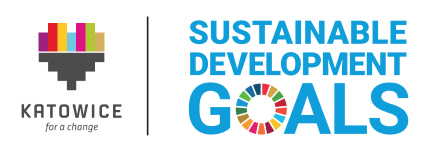
In 2015, the United Nations celebrated the seventieth anniversary of its founding. To the representatives of its member states, gathered at the Sustainable Development Summit in New York, this moment seemed appropriate for the adoption of a new plan for world development by 2030. Global sustainable development goals were developed at that time, with 169 tasks to be accomplished. At the same time, all member states were encouraged to take action to implement these projects.
Analysing the activities carried out by municipal units, the City of Katowice has taken up this UN challenge.
The sustainable development goals are set out in 17 points, affecting economic, social and environmental aspects. They are also a continuation of the Millennium Development Goals, especially in areas that were not achieved at the time.
The objectives are extremely ambitious and challenging. They were prepared based on the results of earlier public consultations, which involved many actors around the world whose voices revolved around the needs of the poorest and most vulnerable people. Last but not least, the goals were developed in accordance with international law and are based on the Universal Declaration of Human Rights, international human rights treaties, and other strategic documents.
As claimed by those who signed this agenda with their own names, it is “a charter of rights for the people and planet in the 21st century”.
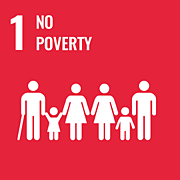
End poverty in all its forms everywhere
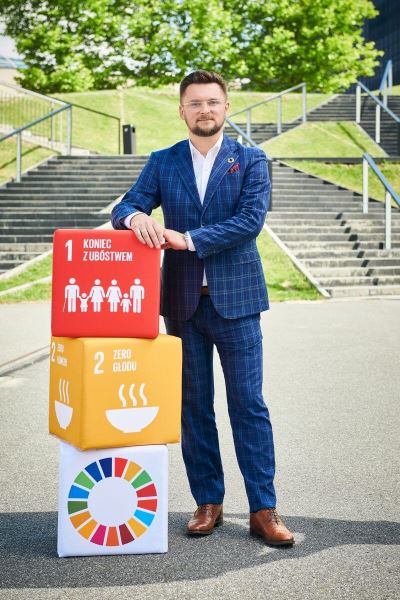 Since 2000, global poverty rates have fallen by more than half. Despite this fact, one in ten people living in the developing region and their families live below the international poverty line of US$1.90 a day, and millions more living on a great deal less. Significant progress has been made in many countries in East and Southeast Asia, but up to 42% of sub-Saharan Africa's population still lives below the poverty line.
Since 2000, global poverty rates have fallen by more than half. Despite this fact, one in ten people living in the developing region and their families live below the international poverty line of US$1.90 a day, and millions more living on a great deal less. Significant progress has been made in many countries in East and Southeast Asia, but up to 42% of sub-Saharan Africa's population still lives below the poverty line.
Poverty is more than a lack of income and the necessities of life. Poverty is hunger, malnutrition, limited access to education and basic services, social discrimination, exclusion and lack of participation in a decision-making process. Economic growth must be inclusive, provide work opportunities and promote equality.
Social protection systems need to be implemented to mitigate the effects of natural disasters and help countries that are vulnerable to them. These systems can support the economy in countries exposed to natural disasters and end extreme poverty in the poorest regions.
KATOWICE CITY ACTIVITIES
Running day-care centres for children and adolescents
There are 28 day-care centres in Katowice run by municipal units and non-governmental organisations, subsidised from the Katowice city budget. Their main aim is to provide support to families experiencing difficulties by extending care and education to children. Children attending such facilities often come from poor, incomplete, disadvantaged families or those at risk of social pathology. Facilities in the form of day centres and youth clubs provide their charges with, among other things:
- learning support (compensatory, therapeutic, speech therapy classes, etc.).
- nutritional support (2 meals a day in the day centre and the youth club)
- specialist assistance (educational therapy, psychological therapy, sociotherapy, counselling)
- organisation of leisure time (leisure clubs, cultural activities, excursions)
Such planned activities help the child in many cases to avoid the phenomenon of so-called inherited poverty and learned helplessness.
Daycare centres run by the Municipal Social Welfare Centre provide 175 places, and non-governmental organisations provide 517 places, for a total of 692 places. In 2024, the City of Katowice has earmarked for this purpose an amount of: PLN 9,103,707.00 (including for the 9 facilities run by the Municipal Social Welfare Centre the amount of: PLN 3,914,387.00 and 20 facilities run by NGOs the amount: PLN 5,189,320.00).
EU project “Katowice Open City - Helping Hand for Families”
In 2024, the City of Katowice, acting through the Municipal Social Welfare Centre, obtained funding for a project entitled “Katowice Open City - Helping Hand for Families”, co-financed by the European Funds for Silesia 2021-2027 (ESF+) programme. The total value of the project is PLN 3,749,552.00.
The aim of the project is to develop, improve the quality and accessibility of support services for families, support children and young people residing in Katowice's 24-hour foster care centres and support people in the process of becoming independent.
The main tasks of the project include:
- family support (family assistance, specialist services, group care training, speech and language counselling, subject-specific tutoring, psychotherapy for children
and adolescents) - support for children and adolescents, including those in institutional foster care (independence assistant, specialist counselling for children and adolescents, subject-specific tutoring, psychotherapy for children and adolescents), and a training flat for young people who have become independent.
The project will run from 01.11.2024 to 30.11.2026.
Charity Shops
A charity shop is a place where residents can bring unwanted items in good condition. These items are then sold and the money from their sale is used for the social statutory purposes of the association running it. Clothing, shoes, handbags, jewellery, books, CDs, games, toys, household items, small electronics and white goods are accepted during the shop's opening hours. The most important thing is that things are clean and undamaged. Buyers later give them a new life as part of the “zero waste” concept, while helping to protect our climate.
- “Tyle tego” charity shop at ul. Morcinka 3a.
It is run by the “Kurka Wodna” Association. The donated items are then sold here, and the money from their sale, is used for the Association's statutory purposes, which mainly relate to work for the excluded, elderly, disadvantaged and disabled.
https://www.facebook.com/tyletego.sklepspoleczny
- FAZA Foundation Charity shop in the municipal premises at pl. Karola Miarki 1.
The Foundation bases its activities largely on regional cooperation with organisations already in operation to help animals and protect the environment. The charity shop's activities can be described in three words: DONATE, BUY, HELP. Profits from sales go towards statutory activities such as workshops, lectures, picnics for local residents and environmental protection.
https://www.facebook.com/charityshopkatowice/
- Deszczu-Kropelką Foundation charity boutiques at ul. Jankego 83 (Ochojec) and ul. Koszalińskiej 18 (Ligota)
What can be donated: clothes, shoes, jewellery, handbags, books, small white goods, plants, small furniture, toys, records, games, glassware, home decorations. The proceeds from the sale of items in the shop go entirely to the “Deszczu Kropelką” Foundation's statutory activities, which include: climate protection, promotion of sustainable consumption and production, gender equality and empowerment of women and girls, ensuring healthy living and well-being for all people of all ages, in-kind support for organisations and people in need.
https://www.facebook.com/deszczukropelka
“Ministerstwo ds. Samotności” - Centre for people who are lonely and in need of help
In 2023, the Społeczne Ministerstwo ds. Samotności (Community Ministry for Loneliness) was opened at the initiative of the “Wolne Miejsce” Foundation. It operates at ul. Mikołowska 44. It is a place that supports people who are lonely, at risk of social exclusion and in a difficult economic and life situation. The space created by the Foundation allows lonely people to find social and emotional support and integrate with other people experiencing the same problems.
As part of an ongoing task co-financed by the City of Katowice's municipal budget, entitled “Centre for lonely people and those in need of help” among other things the following are organised:
- consultations and therapies: individual therapy sessions and group therapy workshops, meetings with a physiotherapist, philosophical counsellor, possibility of phytotherapy - two forest rooms,
- education and prevention activities: consultations with legal experts and a geriatrician, lectures and workshops on coping with loneliness,
- integration and leisure activities: organisation of dances, guided walks around Katowice.
In 2024, Katowice has earmarked for this purpose an amount of: PLN 175,000.00.
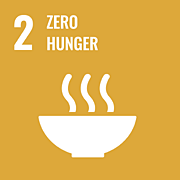
Zero Hunger
If handled properly, agriculture, forestry and fisheries can provide food for all and earn a decent income. At the same time, they can contribute to rural development and environmental protection. It is time to look at how food is produced, consumed and distributed.
Nowadays, soil, drinking water, oceans, forests and biodiversity are rapidly degraded. Climate change has an even greater impact on the environment on which our lives depend. It increases the risk of natural disasters such as droughts and floods. Many rural men and women can no longer make a living from farming and are forced to migrate to cities in search of a better life.
Low food security and the severe malnutrition that comes with it cause developmental disorders and under-growth in millions of children. We need to fundamentally change the global food and agricultural system to feed 810 million hungry people. It is estimated that by 2050, the number of undernourished people will increase by additional 2 billion people. Investment in agriculture is key to expanding production capacity. In turn, introducing sustainable food production systems will reduce the risk of hunger.
KATOWICE CITY ACTIVITIES
Food Aid
In Katowice, there are three canteens for the poor and homeless run by NGOs with the support of the City of Katowice. Meals are served by:
- Upper Silesian Charitable Society in the canteen in ul. Jagiellońska 19
- Roman Catholic Parish of the Immaculate Conception of the Blessed Virgin Mary in the canteen in Pl. ks. E. Szramka 1
- St Brother Albert Aid Society - Katowice Branch in the canteen in ul. Bracka 18
A total of approx. 390 meals is served daily.
In 2024, Katowice has earmarked for this purpose an amount of: PLN 333,127.00.
In addition, there are four food distribution points in Katowice run by NGOs supported by the City of Katowice.
Food aid from the EU's European Funds for Food Aid Programme may be received by individuals and families in a difficult life situation, meeting the criteria set out in Article 7 of the Social Assistance Act, whose income does not exceed a certain level, set as a percentage of the income eligible for social assistance.
For more information on the Programme: https://www.mops.katowice.pl/node/1332
The food products dispensed include: starchy items (biscuits, cereals, pasta, flour, oatmeal), dairy items (milk, yellow cheese), meat and fish items (minced pork ham, poultry ham, pork pate, sprat in oil), vegetable and fruit items (peas with carrots, tomato paste, strawberry jam), sugar, rapeseed oil, ready meals (baked beans).
These centres also carry out other activities, e.g. workshops, ongoing cooperation with specialists, including social workers, in order to counteract negative social phenomena.
In total, around 5,000 people benefit from the programme each year.
In 2024, Katowice has earmarked for this purpose an amount of: PLN 50,000.00.
Development of a network of social shops
The City of Katowice supports the launch of social shops by NGOs. The most important principle of the shops is to sell products whose prices for the overall shopping basket do not exceed 50% of the market price.
There are 2 social shops in Katowice:
- in ul. Tysiąclecia 82 (os. Tysiąclecia)
- in ul. Świdnicka 25 (Ligota-Panewniki)
Only people with special referrals issued by the Municipal Social Welfare Centre in Katowice or the Wolne Miejsce Foundation (which runs the facilities), i.e. those whose income does not currently exceed 300% of the income criterion specified in the Social Assistance Act, can shop in these stores. On Saturdays, however, all residents can shop.
Social shops were visited 65,020 times in 2024 alone.
The idea of running a social shop is to reach out to people experiencing financial difficulties, poverty and life crises occurring as a result of unforeseen events such as an epidemic, loss of a job, sudden disability, illness of themselves or a loved one. In addition, a special space was set aside in the premises in ul. Tysiąclecia 82 for a club-café, “Cafe Spichlerz”, which can be used in particular by Katowice's senior citizens aged 60+, who are grouped around senior citizens' organisations active and regular in Katowice (e.g. in senior citizens' clubs, foundations, associations, the University of the Third Age).
In 2024, the City of Katowice has earmarked for this purpose an amount of: PLN 130,000.00.
Soup in Katowice (Zupa w Kato)
Regularly, every week on Thursday, as part of their service on the street, members of the NGO
(Wspólnota Dobrego Pasterza - Community of the Good Shepherd), together with volunteers, cook soup for the poor, which they later share with the poor in Pl. Przyjaciół z Miszkolca.
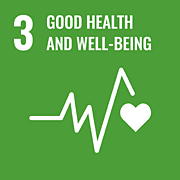
Good health and well-being
Significant strides were made in increasing life expectancy and reducing the most common factors causing infant and maternal mortality. However, reducing the maternal mortality ratio to below 70 cases per 100,000 live births by 2030 requires improved medical care.
Reducing premature deaths from non-communicable diseases by one third by 2030 also requires the use of clean cooking fuel and better education about the harms of smoking.
We must continue to work intensively to tackle the prevalence of many diseases and emerging health threats. By ensuring more effective financing of health systems, improving sanitation and hygiene, access to doctors, and reducing environmental pollution, we can make significant progress in saving millions of lives.
KATOWICE CITY ACTIVITIES
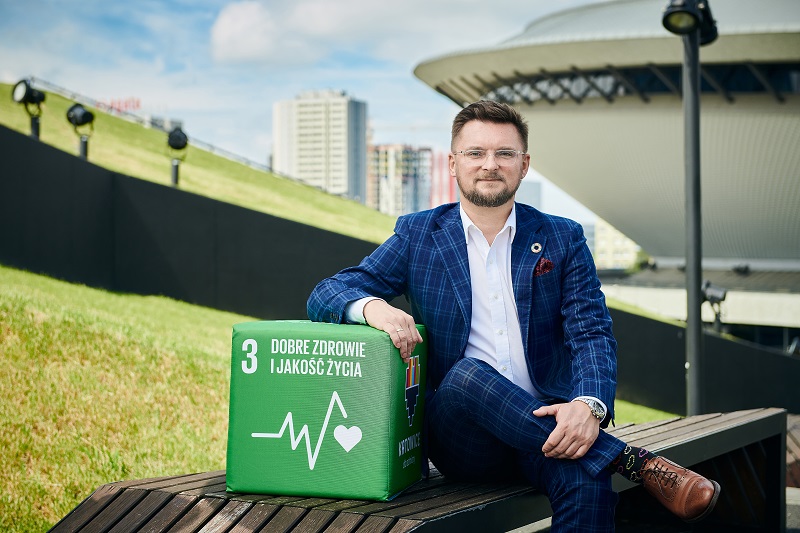
Baseny Burowiec, Brynów and Ligota
Katowice residents use the swimming pool complexes:
- Basen Brynów (ul. T. Kościuszki 104)
- Basen Burowiec (ul. Konna 2)
- Basen Zadole (ul. Wczasowa 8a)
Their construction was promised by Katowice Mayor Marcin Krupa in his election programme. In addition, by decision of the mayor, adult residents of Katowice receive preferential treatment and pay only PLN 10 per hour for using the pool, while children and youth pay half as much. The pools are very popular and their popularity is due to the range of attractions, including a 25-metre pool, a learn-to-swim pool, a paddling pool, water massagers, Jacuzzis, slides and a sauna area. In addition, sports halls have been set up next to the swimming pool complexes for football, basketball, volleyball or karate training.
The modern swimming pools also make it possible to fulfil another commitment made by Mayor Marcin Krupa: the “Jak ryba w wodzie” (Like a fish in water) universal swimming programme for children from Katowice's schools, thanks to which more than 8,000 children have already acquired basic swimming skills. The cost of building the Brynów and Burowiec swimming pools totalled PLN 105.5 million. More than 3 million people have already visited the pools since opening.
Number of visitors to the Brynów, Burowiec and Zadole swimming pools in 2024:
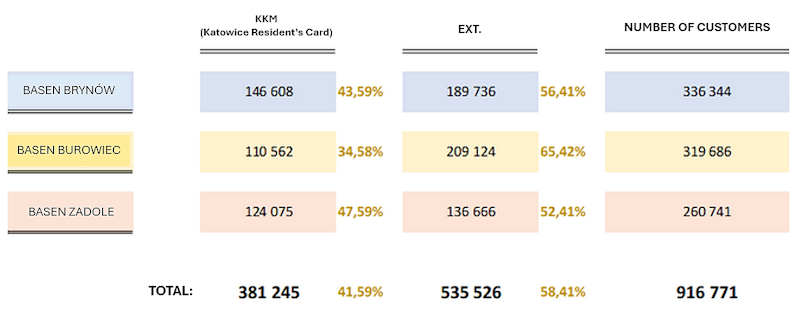
New City Stadium in Katowice
Arena Katowice is a modern multifunctional sports and event complex. It is located in ul. Nowa Bukowa in Katowice, which refers to the history of the GKS Katowice football club and the previous facility on ul. Bukowa. The first match at the Arena Katowice will be played on 30.03.2025 between GKS Katowice and Górnik Zabrze, just after the celebration of the 60th anniversary of the Katowice club.
The arena consists of two facilities. The first one is a football stadium with a capacity of 15,000 spectators. The second facility is a sports and entertainment hall with an auditorium for more than three thousand spectators. The facility also offers training facilities and meeting rooms.
The stadium meets all FIFA and UEFA requirements, making it possible to host events of the highest calibre - from football matches and combat sports galas to business congresses, trade fairs and concerts by international stars.
The cost of the construction work for the stadium and arena is PLN 229 million net (PLN 281 million gross), plus additional costs for the road system and the installation of photovoltaic systems.
Katowicka Karta Mieszkańca (Katowice Residents' Card)
The programme entitled “Katowicka Karta Mieszkańca” (Katowice Residents’ Card) is part of the promotional and social policy implemented by the City of Katowice. The programme aims, among other things, to strengthen the residents' sense of local identity, to improve their living conditions and quality of life by facilitating their access to, among other things, cultural, sport and recreational facilities, and to encourage both residents and people from outside Katowice to register in the City and pay taxes here.
As part of the Programme, Card holders are entitled to discounted entry to, among other things:
- swimming pools and municipal ice rinks
- NOSPR National Symphony Orchestra of the Polish Radio
- Silesian Puppet and Actor Theatre “Ateneum”
- Centre for Culture, Learning and Play “Bajka Pana Kleksa”
- Museum of the History of Katowice
- cultural events
- discounts on PTTK (Polskie Towarzystwo Turystyczno Krajoznawcze - Polish Tourist and Sightseeing Society) trips
and many other discounts offered by private partners (e.g. restaurants, cafés, gyms, optical salons, florists).
Currently, 12 municipal entities and 145 private partners provide discounts for KKM holders.
By the end of 2024, 141,884 Cards had already been issued.
Miejski Dom Kultury Witosa (Witos Municipal House of Culture)
The investment entitled: “Witos MDK - construction of a community centre with development of adjacent areas” was implemented between 2023 and 2024.
“We have acquired a beautiful, modern facility that will serve our residents and citizens. Above all, Witos MDK will increase the cultural and recreational offer in this part of Katowice. This is in response to the needs of the estate's residents, who actively participated in the consultations organised during the preparation of the development. At a cost of almost PLN 25 million, a facility has been created that will contribute to the revitalisation of the district,” says Marcin Krupa, Mayor of Katowice.
The centrepiece of the new MDK is a large hall with a capacity of 200 people. It has technical facilities, a stage for concerts, performances and artistic shows.
There is also an instrumental and music room, a dance and movement room, a ceramics studio, an art room and a ballet room. The building is adapted to the needs of people with disabilities - a lift is available and each room is described in Braille.
Katowice's residents will be able to enjoy a wide range of dance, art, movement and development classes for different age groups.
The second part of the project involved the creation of a park next to the new MDK. This is where the alleys, the forest playground and the bike racks came in. It's a place that allows for all sorts of activities and relaxation amongst the greenery. Dozens of new trees, shrubs and new grass were planted. Environmentally friendly solutions have also been used here, with the creation of a so-called dry river, a trough that fills with water after rainfall and then gradually releases this water, irrigating the surrounding plants. The cost of the entire investment is PLN 24.7 million.
The Witos MDK was officially opened on 4 March 2025.
SENIORS
The addressees of the “Katowicki Senior w Mieście” (Katowice Senior in the City) Programme for 2022-2027 are Katowice senior citizens aged 60 and over. Its main objective is to enhance and improve the quality of life by ensuring that these people have access to appropriate forms of support. The implementation of various projects under the programme is aimed, among other things, at counteracting the loneliness and marginalisation of older people, managing the leisure time of people after retirement (including through the development of skills and individual interests), increasing the activity and participation of older people in social life, health-oriented and educational activities, and conducting physical culture classes.
Each year Katowice contributes more than PLN 50,000,000.00 to the programme.
Details: Katowice Senior in the City programme
The “Złota Rączka” (Golden Hand) project
The aim of the project is to increase and improve the quality of life by providing seniors with access to free services for minor home repairs such as replacing/repairing taps in the kitchen and bathroom, unblocking clogged drains, repairing leaking pipes, connecting washing machines/dishwashers, replacing light bulbs, adjusting/sealing doors and windows, repairing door handles/locks on doors and windows, etc.
The services can be used by residents of Katowice who are over 65 years of age (single people, two-person households) and who are unable to cope with household repairs and cannot always rely on the support of relatives. Fundacja Rozwoju Ekonomii Społecznej (Foundation for the Development of the Social Economy), which receives a grant from the Katowice city budget for this purpose, is responsible for carrying out this task.
In 2024, Katowice has earmarked for this purpose an amount of: PLN 89,980.00 and 648 people benefited.
Excursions for Senior citizens
The Municipal Social Welfare Centre in Katowice is implementing a project to organise excursions for senior citizens.
In 2024, 23 excursions were organised for 1,150 people, to Pszczyna and the Kapias gardens, in close cooperation with Senior Citizens' Clubs. The aim of the project is to integrate Katowice's senior citizens and create opportunities for interesting leisure activities. The trips are a great opportunity to meet new people, develop interests, relax and take care of your health, fitness and physical fitness.
“Srebrne Katowice” (Silver Katowice) project
In 2024, the City of Katowice continued its cooperation with TVS Television, which began in 2020, with the purchase of a television programme aimed at seniors entitled 'The Seniors' „Srebrne Katowice”. This programme is being implemented as part of a broader senior citizenship policy. The content included in the individual episodes of the programme relates to current events related to the senior citizens of our City. A new episode is broadcast every Friday and reruns on Monday and Wednesday.
In 2024, Katowice has earmarked for this purpose an amount of: PLN 339,600.00.
EU projects
In 2024, the City of Katowice obtained funding from the European Union for the implementation of a project under the European Funds for Silesia 2021-2027 (ESF+) programme entitled “Seniors in the big city - developing community-based services through a network of Senior Clubs”. The total value of the project is PLN 3,312,920.00.
The aim of the project is to develop community-based services for senior citizens through the creation of a network of 16 newly established Senior Citizens' Clubs - operating in the city of Katowice - offering direct support to at least 320 senior citizens in need of support in daily life, including due to age, health or disability, and their environment. The establishment of a network of Senior Citizens' Clubs located throughout the city will increase accessibility to this form of support, which will result in increased activity and participation of older people in social life and will counteract their loneliness and marginalisation.
The project runs from 01.10.2024 to 31.12.2026.
„Sportowy Uniwersytet Seniora” (Senior Sports University)
The task is to activate people aged 60+ by organising a variety of sports, integration and healthy lifestyle promotion activities.
The result of the task is to improve the general fitness of seniors, increase their physical condition and shape such a system of attitudes that will allow them to undertake various forms of activity independently in the future. Classes are free of charge and take place at sports facilities throughout Katowice. Sports practised include aqua aerobics, dance, swimming, badminton, yoga, gymnastics, Pilates, table tennis, healthy back, fitball.
In 2024, Katowice has earmarked for this purpose an amount of: PLN 196,000.00 and 45 people benefited from the activities.
Fundacja Rozwoju Ekonomii Społecznej (Incubator for the professional activation of seniors)
Many older people remain professionally active.
The City of Katowice is implementing a project entitled 'Incubator for Professional Activation of Seniors' “Incubator for the professional activation of seniors” as part of the so-called Silver Economy - the Incubator's offer is aimed at residents of Katowice - women 60+ and men 65+. The Incubator for Professional activation of seniors offers seniors:
- support from vocational counsellors in returning to the labour market,
- job search counselling services for seniors,
- drafting of application documents,
- assistance from careers advisors in preparing for interviews,
- assistance of career counsellors in identifying vocational predispositions.
https://katowice.praca.gov.pl/-/16078146-projekt-inkubator-aktywizacji-zawodowej-seniora
In 2024. information was provided to 120 people, 85 job offers were presented and 35 people expressed a desire to take up the offers presented.
“Srebrna książka dla seniora” (Silver book for seniors) of Katowice
Residents aged 65 and over and people with disabilities can order a book or audiobook from the library with home delivery. If you would like to borrow books, you can do so by telephone or e-mail to the address of the branch to which you belong. Delivery and collection of books are free of charge. In 2024, 1,247 visits were made to readers to whom 6235 books and audiobooks were delivered.
“Katowicki Dzień Seniora” (Katowice Senior Citizens' Day)
It is a meeting of seniors with the authorities of our City in Katowice's Market Square, which is a joyful manifestation of the presence of seniors in the city space. During the Senior Citizens' Day celebrations,
in a fun and friendly atmosphere, older people have the opportunity to listen to concerts and watch shows. A meal awaits each participant, and in the afternoons the seniors participate in side events, i.e. theatre performances or film screenings at the cinema. Around 1,000 people attend this event every year. In 2024, the event took place on 23 September.
The amount of funding allocated for this purpose was: PLN 50,000.00.
Local Activity Programmes and Community Centres
In 2024, the City of Katowice raised funds and started implementing projects financed by the European Funds for Silesia 2021-2027 Programme (Fair Transformation Fund).
The aim of the projects is to improve the social functioning and develop the social activity of the participants - people living, studying and working in a particular district of the City of Katowice.
Local activity programmes for 2024-2026:
- "Centrum Społecznościowe Szopki w Szopienicach. W stronę sprawiedliwej transformacji.” (Nativity Scene Community Centre in Szopienice - Towards a just transition)
- PLN 2,753,698.00; - “Program Aktywności Lokalnej Wełnowiec - Józefowiec i Dąb. W stronę sprawiedliwej transformacji. (Local Activity Programme Wełnowiec - Józefowiec and Dąb - Towards a just transition) - PLN 1,939,248.00;
- “Bogucice - moje miejsce na ziemi. W stronę sprawiedliwej transformacji.” (Bogucice - my place on earth. - Towards a just transition) – PLN 2,179,940.00;
- “Centra Społecznościowe w Śródmieściu i Zawodziu. W stronę sprawiedliwej transformacji.” (Nativity Scene Community Centre in Szopienice - Towards a just transition)
- PLN 3,053,100.50; - “Centrum Społecznościowe Nasze Załęże. W stronę sprawiedliwej transformacji.” (Community centre Nasze Załęże - Towards a just transition) – PLN 2,298,593.84;
- "Nowe Centrum Społecznościowe w Dąbrówce Małej. W stronę sprawiedliwej transformacji.” (Nativity Scene Community Centre in Szopienice - Towards a just transition)
- PLN 1,646,590.80;
The main tasks include:
- community organisation
- environmental education activities
- awareness-raising activities to support women's competences
- cultural activities in the field of local, regional and historical identity
- organisation of the District Active Residents' Academy
Activities for people with disabilities:
“Asystent osobisty osoby niepełnosprawnej” (Personal assistant for persons with disabilities) and “Opieka wytchnieniowa” (Respite care) programmes
Edition 2024 with funding from the Solidarity Fund (Ministry of Family and Social Policy).
Municipal Social Welfare Centre obtained funds from the Solidarity Fund in the amount of PLN 1,561,159.77 for the implementation of the “Personal assistant for persons with disabilities” programme, and PLN 302,532.00 for the implementation of the “Respite Care” programme
In 2024, 124 people benefited from the services of a personal assistant for persons with disabilities, for whom 33,269 clock hours of assistants’ services were provided.
Responding to the great need for support with personal assistance services for residents with disabilities, additional funding of PLN 350,000.00 from the Katowice city budget was allocated for this purpose, ensuring that an additional 33 people were covered by services to the tune of 6,815 clock hours.
The respite care in 2024 is implemented in the form of:
- day stays
- 24-hour stays
With respite care, parents/carers have free time for themselves, which they can use for such things as travel, rehabilitation or relaxation. The stay includes tasks of daily living, assistance with basic household activities
and care, as well as spending time together in the form of games, play and educational activities.
The aim of the stay is to improve quality of life, support in daily functioning and help with educational activities. In 2024, 40 people with disabilities participated in the programme, including 31 adults and nine children.
EU programme “Ramię w ramię – rozwój usług asystenckich w Katowicach” (Shoulder to shoulder - development of assistance services in Katowice)
In 2024, the City of Katowice obtained funding for this project co-financed under the European Funds for Silesia 2021-2027 (ESF+) - PLN 3,992,800.00.
The aim of the project is to develop social services by providing equal and quick access to good quality, sustainable and affordable personal assistance services for min. 56 people - residents of the city of Katowice with a recognised disability.
The project runs from 01.10.2024 to 30.04.2027.
Support group “Radość życia – wszystko mogę” (Joy of life - I can do anything)
Programme implemented by the City of Katowice. It is an open group, for people aged 50+, older or disabled residents of Katowice, who want to still be active and be an example for others.
The programme aims to:
- improve the quality of life of older and disabled people
- provide for social, cultural needs through their activation in creating leisure activities.
Support group meetings are held at:
- MDK in ul. Boya Żeleńskiego 83
- MDK in ul. Kołodzieja 42
“Słonecznik” (Sunflower) programme
The programme provides assistance through volunteer action for the elderly and disabled. The addressees of the programme are people who, due to their age and limitations, require support from the Municipal Social Assistance Centre in Katowice.
Objectives of assistance under the programme:
- Maintaining social relationships and safety in the residential environment for the elderly and disabled,
- expanding social contact and activating older and disabled people,
- increasing the sense of security.
Transport services for disabled residents of Katowice
The City of Katowice provides transport services aimed at people with disabilities who are residents of Katowice. Residents are transported not only in Katowice, but also in the neighbouring municipalities, i.e: Chorzów, Mikołów, Mysłowice, Tychy, Ruda Śląska, Sosnowiec, Siemianowice Śląskie, Czeladź, Monday to Saturday from 6.00 a.m. to 10.00 p.m., and
on Sundays and public holidays from 8.00 am to 8.00 pm. In 2024, 2,471 people used the transport. The value of the project in 2024 is PLN 229,409.80. Transport for people with disabilities (katowice.eu)
Municipal Emergency Notification System “Sygnał życia” (Life Signal)
The programme has been running since 2008 with the aim of increasing the safety of older people
and people with disabilities. This system is aimed at people who are not always able to communicate with the dispatcher receiving the call and provide the information necessary to assist in an emergency. The System Participant must have a landline or mobile phone from which the number will identify the Participant in the system.
In the event of an emergency, after making a call from the telephone number provided in the questionnaire, the dispatcher at the Provincial Emergency Notification Centre will obtain information about the need for assistance and the details of the reporting person, which he or she will pass on to the Provincial Ambulance Service.
In 2024, Katowice's senior citizens were able to find out how the Programme works at information meetings.
District Social Council for People with Disabilities
As part of its meetings, the Council consults with designers on urban projects in terms of accessibility and adapting urban spaces for people with disabilities. The Council is made up of people
with disabilities.
Council members also give their opinion on draft resolutions and programmes adopted by the City Council in terms of their impact on people with disabilities. They actively participate in the creation of projects aimed at the social inclusion of people with disabilities.
“Zawód: pies asystujący” (Profession: assistance dog) campaign
The safety and comfort of everyone using the Authority's services is a priority for us, which is why we are spreading awareness of behaviour towards assistance dogs so that their owners can make the most of public spaces.
Campaign details: Profession: assistance dog (katowice.eu)
To introduce the secrets of the work of the assistance dog to our young residents, a series of workshops was held for pupils from Katowice's schools and kindergartens. The main aim of the workshop was to build awareness of the work of an assistance dog. Better public awareness of this issue will ensure that people with assistance dogs are more comfortable in public spaces.
Reducing mortality by promoting mental health and well-being
There are currently five Community Self-Help Centres in Katowice run by NGOs, with a total of 133 places, including two for chronically mentally ill people, two for people with intellectual disabilities and one for people with autism spectrum disorder and coupled disabilities, i.e:
- Community Self-help Centre in ul. Gliwicka 74A
- Community Self-help Centre in ul. Tysiąclecia 41
- Community Self-help Centre in ul. Oswobodzenia 92
- Community Self-help Centre in ul. Brata Alberta 4
- Community Self-help Centre in ul. Oswobodzenia 47
Community Self-Help Centres provide services in individual or group self-care and social skills training, consisting of learning, developing or maintaining skills in activities of daily living and social functioning.
Free specialist counselling
The City of Katowice provides specialist counselling to the residents of Katowice (regardless of their income situation) as part of the offer of the Municipal Social Welfare Centre. Counselling is provided by psychologists, educationalists, therapists, psychiatrists and social workers.
Municipal crèche in Katowice
In 2024, there was a City Crèche with 13 branches located in different districts of the city of Katowice. It had a total of 987 childcare places for children up to the age of three, including 10 additional places created for Ukrainian children.
It implements the highest standards of childcare, offering, among other things:
- modernly equipped children's rooms and playgrounds,
- numerous activities led by qualified staff,
- support from a psychologist and speech therapist,
- tasty and healthy meals prepared in their own kitchens based on menus prepared by a dietician.
In 2024 the crèche continues to implement the project entitled “Promoting early childhood development (ECD) and early childhood education and care (ECCE)” with the support of UNICEF funding. The aim of the project is
in particular to support Ukrainian children and families in their social inclusion process.
As part of the project, group activities were carried out in all branches of the Municipal Crèche: music and movement, art and development, activities with a psychologist and individual consultations
with a psychologist and speech therapist in the specialists' office in ul. Ordona 3A.
Due to high demand, there was an increase in crèche care places in 2024 as part of the “Programme for the development of childcare institutions up to the age of 3 MALUCH+ 2022-2029” by a total of 28 places, while an increase of 144 additional crèche care places is planned between 2025 and 2026, including: 54 additional places to be created at the already existing City Crèche branches in Katowice and 90 new places at the City Crèche branch under construction in ul. Kossutha 7.
Programme for Prevention and Health Promotion for the City of Katowice for 2021-2027
The City of Katowice has for many years been undertaking projects aimed at improving the health and quality of life of its residents. The following programmes are currently being carried out:
- Preventive vaccination programme against human papillomavirus (HPV). In 2024, contracts were concluded for the amount of: PLN 61,323.60, allowing 113 doses of vaccine to be administered.
In 2024, 96 vaccinations have already been carried out (56 girls and 40 boys). - Caries prevention programme for children. In 2024, the programme was implemented in 4 kindergartens and covered approximately 200 4- and 6-year-old children together with their parents. The amount for this target is: PLN 26,900.00.
- “Bezpieczna szkoła” (Safe School) - an educational programme to provide first aid in life-threatening situations to primary school children in year six. In 2024, 18 training sessions were conducted in 11 selected primary schools in the city of Katowice for a total amount of: PLN 62,190.00.
- Third and fourth age prevention programme - primary stage. A total of funding earmarked for the core phase of the programme in 2024: PLN 50,400.00. Within the framework of the concluded contracts, 220 people are planned to be covered by preventive examinations within the basic stage.
- Prevention programme for the third and fourth age group - rehabilitation phase. A total amount allocated for 2024: PLN 59,200.00. Approximately 150 people are to be covered by examinations.
- Preventive health programme in the area of antenatal education “Szkoła Rodzenia” (Birth School). A total of funds allocated for the programme in 2024: PLN 32,416.00, allowing 72 women to receive antenatal education along with any accompanying persons.
Municipal Commission for Solving Alcohol Problems in Katowice
The Commission was established as part of the municipality's tasks under the Act on Upbringing in Sobriety
and counteracting alcoholism as defined in the Municipal Programme for the Prevention and Solving of Alcohol Problems and Counteracting Drug Addiction.
The Mayor of the City of Katowice has set up the Municipal Commission for Solving Alcohol Problems in Katowice to help addicts and their families cope with
the addiction problem. There are a number of therapeutic centres in Katowice dealing with the above-mentioned topics.
A list of aid venues is available in the handbook.
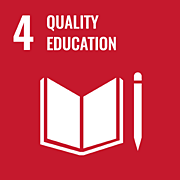
Quality education
ENSURE INCLUSIVE AND EQUITABLE QUALITY EDUCATION AND PROMOTE LIFELONG LEARNING OPPORTUNITIES FOR ALLQuality education is the basis for improving people's lives and sustainable development.
Universal access to education improves the quality of life and makes it possible to find innovative solutions to the major problems of the contemporary world.
Currently, more than 265 million children are out of school and 22% do not attend primary school. Furthermore, even children who are in school cannot read or count.
Significant progress has been made in increasing access to education at all levels. The number of people in education has increased, especially women and girls. While more and more people also have basic literacy skills, further efforts need to be made to achieve the Universal Education Goal. For example, while equality for boys and girls in access to primary education has been achieved globally, only a few countries have met this goal for all levels of education.
Reasons for poor quality education include lack of adequately trained teachers, poor school conditions and unequal access to school for children in rural areas. Ensuring quality education involves establishing educational scholarship programmes, teacher workshops, building schools and improving access to water and electricity in schools.
KATOWICE CITY ACTIVITIES
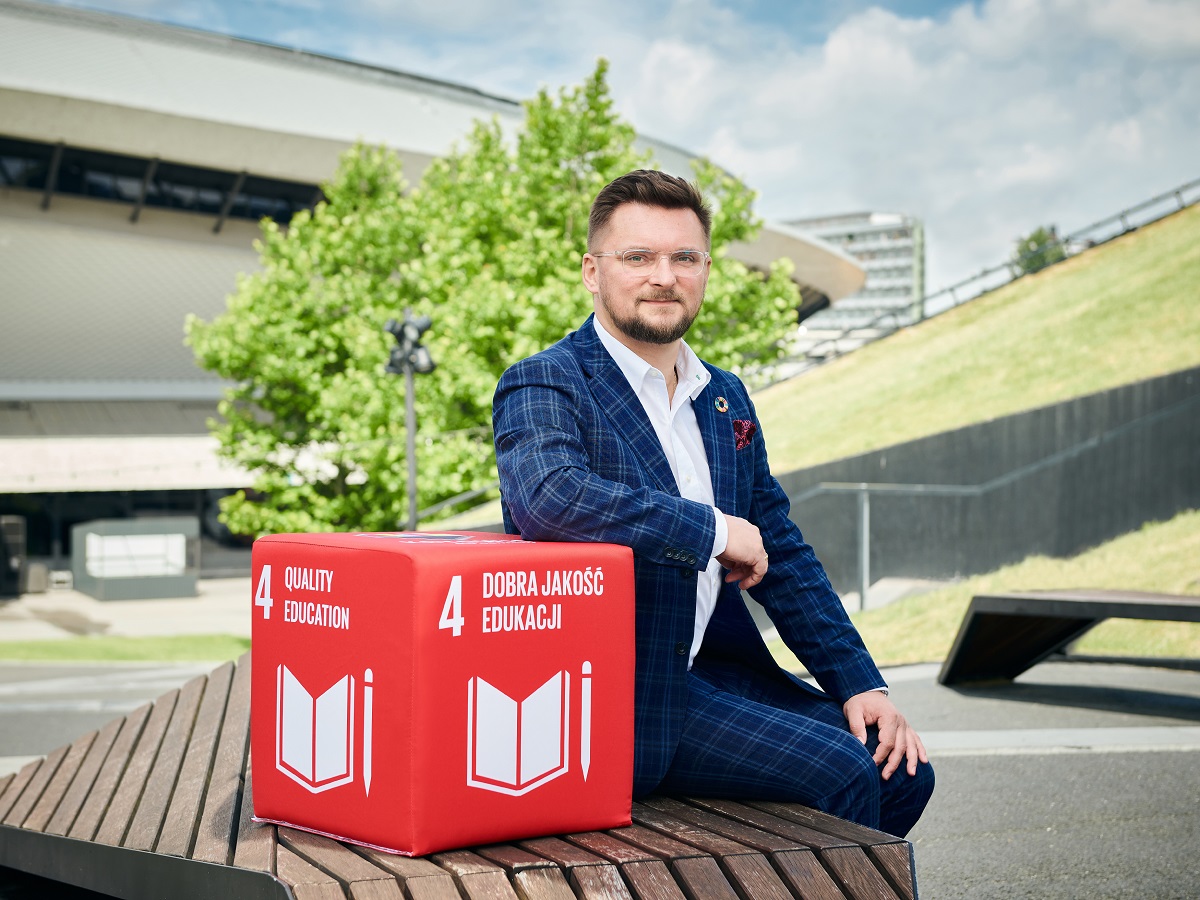
Europejskie Miasto Nauki 2024 (European City of Science 2024)
Katowice was the first city in Central and Eastern Europe to be awarded the title of European City of Science. The city has signed a contract with the Academic Consortium, which consists of local universities, to organise and co-organise a series of academic events. In 2024, Katowice hosted the 11th edition of the EuroScience Open Forum, the Inter-University Inauguration and more than 1,000 events over 50 themed weeks, attracting more than 270,000 people.
One of the initiatives to disseminate knowledge and promote the idea of the European City of Science is the Kato Science Corner - an attractively arranged space in one of the historic tenement houses near Katowice's Market Square, which hosts various meetings, workshops and other educational undertakings aimed at all city residents.
Śląski Festiwal Nauki (Silesian Science Festival)
The 8th edition of the Silesian Science Festival took place on 7-9.12.2024 at the International Congress Centre. This unique event was the conclusion of the European City of Science Katowice 2024 celebrations, offering a myriad of attractions, lectures, workshops and interactive science shows. The 8th edition focused on the theme “New Silesian Industry”, showing how science and innovation are shaping the future of the region.
The festival programme included 20 themed stages showcasing the latest scientific developments. There were numerous author meetings, debates and workshops for children and young people. Guests had the opportunity to listen to lectures by Nobel Prize winners, including Professor Georg Johannes Bednorz, learn about the projects of Fulbright Foundation grantees, and participate in inspiring debates and meetings with prominent figures from the world of science.
New to the 8th edition were special zones such as the AI Zone, the Space Zone and the Gaming Zone, which provided participants with a fascinating journey into the world of modern technology. In the artificial intelligence zone, it was possible to learn about its applications in various areas of life, and to ask questions to experts and AI developers. In the Space Zone, for example, participants built telescopes out of LEGO bricks, visited the largest planet in the Solar System, Jupiter, at demonstration stands or saw the Mars rover up close. In the Gaming Zone you could be transported to virtual worlds of computer and board games.
Admission to the event is free of charge, but requires pre-registration, which provides access to a number of exciting attractions and allows the use of free public transport in Katowice.
For more information: slaskifestiwalnauki.pl.
Climate Education
In 2022 The Mayor of the City of Katowice, Dr. Marcin Krupa, has appointed a “Team for the development of the Pilot Curriculum for Climate Education” to be implemented in Katowice's schools. The team included both school teachers, academics specialising in the subject, local government councillors and officials. The team developed four main thematic areas around which Katowice's original city programme oscillates. These are: criticism of consumerism, loss of biodiversity, anthropogenic climate change and, due to the peculiarities of the post-mining Silesian region, the energy transition. The programme is complemented by practical activities offered by the Centre for Environmental Education at the Jarosław Iwaszkiewicz School Complex No. 2 in Katowice - including nature-themed workshops and field activities.
This is the first such programme to be implemented in public schools in Poland, and is unique in that it involves the integration of climate crisis content into the core curriculum in grades 7. Topics related to the climate crisis are implemented in an interdisciplinary correlation through cross-curricular pathways, so that education is not limited to classroom schemes, but moves out of the zone of “teaching to the test” and bases the process on the interdependence, relativity and complexity of the world.
Katowicki Diament Edukacyjny (Katowice Education Diamond) - Award of the Mayor of Katowice and the Rector of the University of Silesia
This special award is dedicated to pupils of Katowice schools who live in our city and who not only achieve high results in their studies, but also in the fields in which the awards are granted, i.e. humanities and foreign languages, science and natural sciences, social and civic competences, regional education, culture and art, and sport. These pupils are active beyond the school walls, achieving successes, developing talents and passions, and inspiring others to develop with their committed and pro-social attitude. The aim of the award is to support the potential of young Katowice residents, promote their talents and achievements, motivate them to improve their key competences and create positive role models for school communities.
The 2024 edition awarded: 34 first level awards, 52 second level awards, 52 third level awards and 3 special awards. The award gala took place on 15 October 2024 at the Youth Palace in Katowice. The awards were presented by the Mayor of Katowice, Marcin Krupa, and the Rector of the University of Silesia, Professor Ryszard Koziołek.
Katowice Miastem Fachowców (Katowice as a City of Professionals)
It is a programme designed to encourage young people facing the choice of a further education path to take up education in trade and technical schools. The programme is intended to increase public knowledge and awareness of the dual education system and showcase the rich offer of the city of Katowice in terms of career opportunities. The programme has been implemented periodically since 2018. The next edition of the programme is currently underway, which will see around 1,500 pupils in the 7th grade of primary schools participate in 79 study visits to Programme partners. Company study visits are a key module of the programme. After the visits, the students go on to visit trade and technical schools training in the professions covered by the company visits. The final stage of the programme is the concluding educational lessons conducted as part of the school activities.
Partners of the 6th edition of the Katowice City of Professionals programme include: EMAG, Marysin Dwór Hotel S.A., Przedsiębiorstwo Komunikacji Miejskiej Katowice Sp. z.o.o, Koleje Śląskie Sp. z o.o, Qubus Hotel, Tramwaje Śląskie S.A, Tauron Polska Energia S.A.,Alstom Polska S.A., Rockwell Automation Sp. z o.o.
Uniwersytet Najlepszych (University of the Best)
The programme aims to showcase the rich educational offer of the University of Silesia and encourage people to study in the Silesian Voivodeship. It supports students in the development of their cognitive activity and stimulates their innovation and creativity. The main working method here is personalised education based on tutoring. The tutor is a mentor helping to find the optimal academic path and adapting it to the student's own interests. During the meetings, the tutor works with the participant in an attempt to accurately recognise his or her potential, helps to discover and develop talents, motivates and, together with the mentee, sets a path for development. Participants in the programme are recruited from primary and secondary school students. The programme involves the implementation of individualised educational programmes for gifted students under the guidance of academics at the University of Silesia.
Śląska Szkoła Ćwiczeń (Silesian School of Exercise)
The aim of the project is to improve the functioning and increase the use of the school support system in terms of developing in students key competences and universal skills, the so-called transversal skills, necessary in the labour market. Such skills include: mathematical and natural science skills, foreign language skills (including Polish for foreigners and returnees to Poland and their families), ICT, reasoning skills, creativity, innovation, entrepreneurship, critical thinking, problem solving, learning to learn, teamwork skills in the context of the work environment, as well as experimental teaching and methods of personalised approaches for students.
The project implementers as lead schools were:
- SP nr 17 im. T. Kościuszki;
- SP nr 33 z Oddziałami Dwujęzycznymi im. Stanisława Ligonia;
- III LO im. Adama Mickiewicza, ZSZ nr 2 im. Jarosława Iwaszkiewicza.
The supported schools were nine in Katowice and two schools located in rural municipalities - from Świerklaniec and Orzech. Project partners have been: The University of Silesia in Katowice and the Non-public Teacher Training Institution SOKRATES Education and Training Group. As of December 2022, the project has entered a 5-year sustainability phase and continues, increasing the number of establishments supported each year. The total value of the project is PLN 1,218,587.71.
Zakodowane Katowice (Coded Katowice)
This is a proprietary programme of additional coding and programming activities for third-grade primary school students. It develops students' logical thinking and reasoning skills, as well as the formation of social competences. These activities allow for the development of teamwork skills in the most child-friendly way: through experience and experimentation, which also translates into faster memorisation of information and its skilful use in practical action.
Matematyczne Katowice (Mathematical Katowice)
This is a proprietary programme of additional mathematics activities for fourth-grade primary school students. The aim of the programme is to stimulate intellectual development by instilling in children the enthusiasm and motivation to learn about mathematics. The programme focuses on making pupils aware that knowledge of mathematics has a tangible, practical dimension and helps in many everyday activities, thus fostering a positive attitude towards the “queen of sciences”. Pupils develop skills in logical thinking, experimentation, critical analysis and teamwork through participation in the activities.
Czas na staż (Time for an internship) - internships for students of the Gastronomy School Complex
The project is aimed at 60 students, including 2 with special educational needs, from the Technical School No. 3 and the Secondary Vocational School No. 2 of the Complex of Gastronomy Schools in Katowice, studying the professions: Food and gastronomy services technician, waiter services technician, cook, port and terminal operations technician, Warehouse logistics specialist. The subject of the project is the implementation of student internships under real conditions in workplaces in the local market. The internships run from 12.2024 to 11.2025.
Jestem zawodowcem 2.0 (I am a professional 2.0) - supporting the quality of vocational education through student internships
The aim of the project is to promote equal access to quality vocational training by enabling 90 male and female students studying the professions of photo and multimedia technician, electronics technician and broadband electronic communication technician at Technical School No. 12 to participate in internships with entrepreneurs between 1.04.2024r. to 30.11.2026.
Professional development of Hotel Management Technician trainees
The project is aimed at 60 male and female students and five female teachers of practical vocational training at Technical School No. 2 of the Economics School Complex, specialising in Hotel Management Technician faculty.
The subject of the project is the organisation of individual and group professional counselling for students, the organisation of professional training/courses for project participants (both students and teachers) and the retrofitting of 3 computer labs and the creation of 1 hospitality lab - a room for practical vocational training reflecting natural working conditions.
Atrakcyjne Kształcenie Zawodowe Krokiem do przyszłości (Attractive vocational training - a step into the future)
The aim of the project is to develop vocational education at the Group of Polygraph and Mechanical Schools through the creation of modern learning conditions in adapted and retrofitted teaching laboratories, support for 240 male and female students with participation in courses and/or student internships, and improvement of the qualifications of 12 vocational training teachers in the form of training, in the period from 06.2024 to 06.2026.
The project's support was extended to students studying the following disciplines: graphic design and digital printing technician, printing processes, advertising, IT and mechatronics.
Nowoczesne kształcenie zawodowe szansą na lepszy start (Modern vocational training for a better start)
The aim of the project is to develop vocational training at the Stanislaw Mastalerz School Complex No. 7 through the creation of modern training conditions in adapted and retrofitted teaching laboratories and support in the form of vocational courses for students and teachers of practical vocational training.
The project is aimed at 60 students and 12 teachers of practical vocational training at School Complex No. 7 in Katowice. Support under the project will be provided to students studying the following faculties: automotive technician, road transport technician, rail transport technician and electromechanic.
Aby start był łatwiejszy 3 – Lepszy start z pasją (For an easier start 3 - A better start with passion)
The entity implementing the project is School and Kindergarten Complex No. 1 in Katowice.
The aim of the project is to increase the educational opportunities of children, in particular those with disabilities and special educational needs, by providing specialised, educational and therapeutic support (additional language, mathematics, IT, speech therapy, developing creativity and social skills). The project is aimed at 60 pupils and 20 teachers at Primary School No. 18, which is part of School and Kindergarten Complex No. 1, between 09.2024 and 12.2026.
W pogoni za technologią - nowoczesne kształcenie zawodowe odpowiedzią na przyszłe potrzeby (In pursuit of technology - modern vocational training to meet future needs)
The entity implementing the project is the Technical and Comprehensive School Complex No. 2. The aim of the project is to develop vocational education through the creation of modern learning conditions in adapted and retrofitted teaching laboratories and support for students in the form of training/courses, as well as for teachers of practical vocational training in the form of training/courses/postgraduate studies. The project targets 160 students and 10 teachers. Support under the project from 09.2024 to 06.2026 will be provided to students studying the following technical faculties: automation technician, electrician, energy technician, IT technician, programmer, roboticist.
Jestem zawodowcem 3.0 - rozwój kształcenia zawodowego poprzez kursy dla uczniów i nauczycieli oraz wsparcie praktycznej nauki zawodu (I am a professional 3.0 - development of vocational education through courses for students and teachers and support for practical vocational training)
The aim of the project is to improve the professional qualifications, including practical skills of students and teachers of vocational training at Technical School No. 12, which is part of the Technical and Comprehensive School Complex No. 3 and teaches Photography and Multimedia Technician, Electronics Technician and Broadband Electronic Communications Technician, by holding courses for students and teachers of practical training and by providing additional equipment and adapting laboratories, thereby improving the quality of education in the school.
The project targets 60 students and 15 teachers and runs from 09.2024 to 06.2026. Vocational courses are organised for project participants (both students and teachers). Practical training workshops will be retrofitted with the equipment necessary for the courses and equipment that brings the conditions for the practical classes closer to the modern realities of the labour market.
Z nami zostaniesz zawodowcem (Become a professional with us)
The aim of the project is to improve the professional qualifications, including practical skills of students and teachers of practical vocational training at the Technical School No. 16 and the Secondary Vocational School No. 12 (of the Jarosław Iwaszkiewicz School Complex No. 2, Vocational and Continuing Education Centre) by organising student internships, vocational counselling, courses and training for students and teachers, as well as the retrofitting and adaptation of workshops, in the period from 10.2024 to 06.2026.
Municipal programme “Jak ryba w wodzie” (Like a fish in water)
This is a universal swimming project aimed at third-grade pupils in primary schools, at a rate of one hour per week, carried out in the city's swimming pools. They last for two semesters.
The aims of the project are to teach swimming lessons, prevent faulty posture and combat overweight among Katowice schoolchildren. The city provides free access to facilities, instructors, teachers looking after the children, as well as transport to activities. As a result of the “Like a fish in water” programme, the “Swimming Elite of Katowice” project is being implemented. Among the third-grade pupils taking part in the “Like a fish in water” programme, 48 of the most talented swimmers are selected each year and begin classes in the fourth grade to improve their skills, taking advantage of free classes at the city's three swimming pools.
Mobility abroad
The City of Katowice, through its subordinate educational institutions, regularly applies for funds to enable groups of pupils and teachers to benefit from foreign trips to European Union countries within the framework of, among other things, the Erasmus + and POWER programmes. International mobility enables people to acquire knowledge and experience as well as to learn foreign languages, develop learning skills, acquire new competences necessary for personal development, future employment and active European citizenship.
Projects provide the opportunity to develop skills in a variety of areas such as working in an international group, developing language skills, social relations or planning and implementing project activities.
Bilingual teaching
There are five primary schools and four secondary schools with bilingual departments in Katowice.
In addition, there are bilingual English-language departments at Technical School No. 2 for the occupation “hotel management technician” and “business economist”.
In addition, the Adam Mickiewicz High School No. 3 has departments with elements of bilingual teaching with English - preparing for the International Baccalaureate (IB DP) programme.
The 10th I. J. Paderewski High School has departments with Chinese and Spanish as complementary subjects.
In turn, students at the 14th Mjr Henryk Sucharski High School have the opportunity to learn Japanese in a class with a journalism and arts profile. This is complemented by the introduction of a class division with Korean and Japanese as complementary subjects from the 2023/2024 school year.
The International Universal Bilingualism Programme is being implemented in 31 local authority kindergartens in Katowice. The fundamental aim of the Programme is to give children daily, contextualised exposure to English at a time of particular linguistic sensitivity, which is particularly relevant for pre-school children, so that English never becomes a foreign language for them.
Miejski Bank Dobrych Praktyk (Municipal Bank for Good Practice, MBDP)
It is a platform for the exchange of experience, the dissemination of teaching and learning materials and proposals for innovative educational solutions in the City's educational establishments. It primarily serves teachers and educators in kindergartens, schools and institutions, supporting them in their daily professional work, but it also contains materials aimed at anyone seeking support in education and upbringing. It includes examples of lesson plans and meetings, thematic multimedia and interactive presentations, diagnostic tools, didactic tests, descriptions of projects and programmes, etc., which are the result of the initiatives of teachers from educational institutions in Katowice. The amount of content posted there has increased significantly over the past year. MBDP already has more than 1,000 materials.
https://katowice.eu/dla-mieszka%C5%84ca/ucz-si%C4%99/miejski-bank-dobrych-praktyk
Samorządowy Lider Edukacji (Local Government Education Leader)
The idea behind the Programme is to promote local government units with outstanding achievements in the development of education and the educational system, as well as to raise the quality of local government activities in the sphere of local educational policy.
An expert commission, composed of academics representing selected Polish universities, evaluates the activities of local authorities in the field of education management. Local authorities that meet certain criteria and receive a positive review by experts are awarded a certificate and the prestigious title of “Local Government Education Leader”. Experts recognise innovative solutions in the areas of providing quality education, educational marketing, increasing the safety of children and young people or cooperation between local authorities and scientific institutions. The Commission also takes into account the effectiveness of municipalities and districts in adapting education to the challenges of today, such as the needs of the economy.
The Final Gala of the 13th edition of the “Local Government Education Leader” competition, organised by the Foundation for the Development of Education and Higher Education, was held on 19.03.2024 at the Youth Palace and its partner was the European City of Science Katowice 2024.
During the Final Gala, the City of Katowice was awarded the CERTIFICATE of the “LOCAL GOVERNMENT EDUCATION LEADER” for the 9th time in a row for its special activity in the field of educational development and support for educational environments. organised by the Foundation for the Development of Education and Higher Education.
The jury also selected and honoured the Gustaw Morcinek Primary School No. 65 in Katowice with the CERTIFICATE OF “EDUCATIONAL EXCELLENCE”, a distinction awarded to schools and educational establishments whose managing bodies are the units certified in the programme. The school is thus among the award-winning establishments which, demonstrating the highest quality of education and a modern management model, achieve significant success in the education of children and young people.
KATO4U - youth zones
Youth zones were created in 2024 at:
- SP nr 10 w Zespole Szkolno-Przedszkolnym nr 24
- VII Liceum Ogólnokształcącym im. Harcerzy Obrońców Katowic
They are child- and youth-friendly places, providing opportunities to meet, exchange ideas, act together and take initiatives for the benefit of their community. Children and young people, with the support of adults, can spend their time there as they wish, pursuing their own ideas, passions and initiatives, co-creating and co-managing the space entrusted to them according to the principle of nothing about us without us.
These spaces are non-commercial, inclusive meeting places with peers, providing a space for relaxation, leisure and community building.
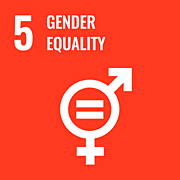
Gender equality
Achieve gender equality and empower all women and girls
The achievement of the Millennium Development Goals has contributed to making progress on gender equality and the empowerment of women in the world. Among other things, equal access to primary education for girls and boys has been achieved. However, in every part of the world, women and girls continue to suffer discrimination and violence.
Gender equality is not only a universal human right. It is also the foundation of a sustainable world in which people will live in peace and prosperity.
Sadly, one in five women aged 15-49 admits to having experienced physical or sexual violence by a partner in a 12-month period. There are currently no laws protecting women from domestic violence in 49 countries. There has been progress in combating harmful practices such as child marriage and female genital mutilation. These practices have decreased by 30 per cent in the last decade, but much remains to be done to eradicate them completely.
Ensuring that women and girls have equal access to education, health care and decent work and to participate in political and economic decision-making will strengthen sustainable economies and benefit societies and humanity as a whole.
The implementation of a new legal framework for equality in the workplace and the combating of harmful practices against women are essential actions to put an end to gender discrimination occurring in many countries. (Source: UN)
KATOWICE CITY ACTIVITIES
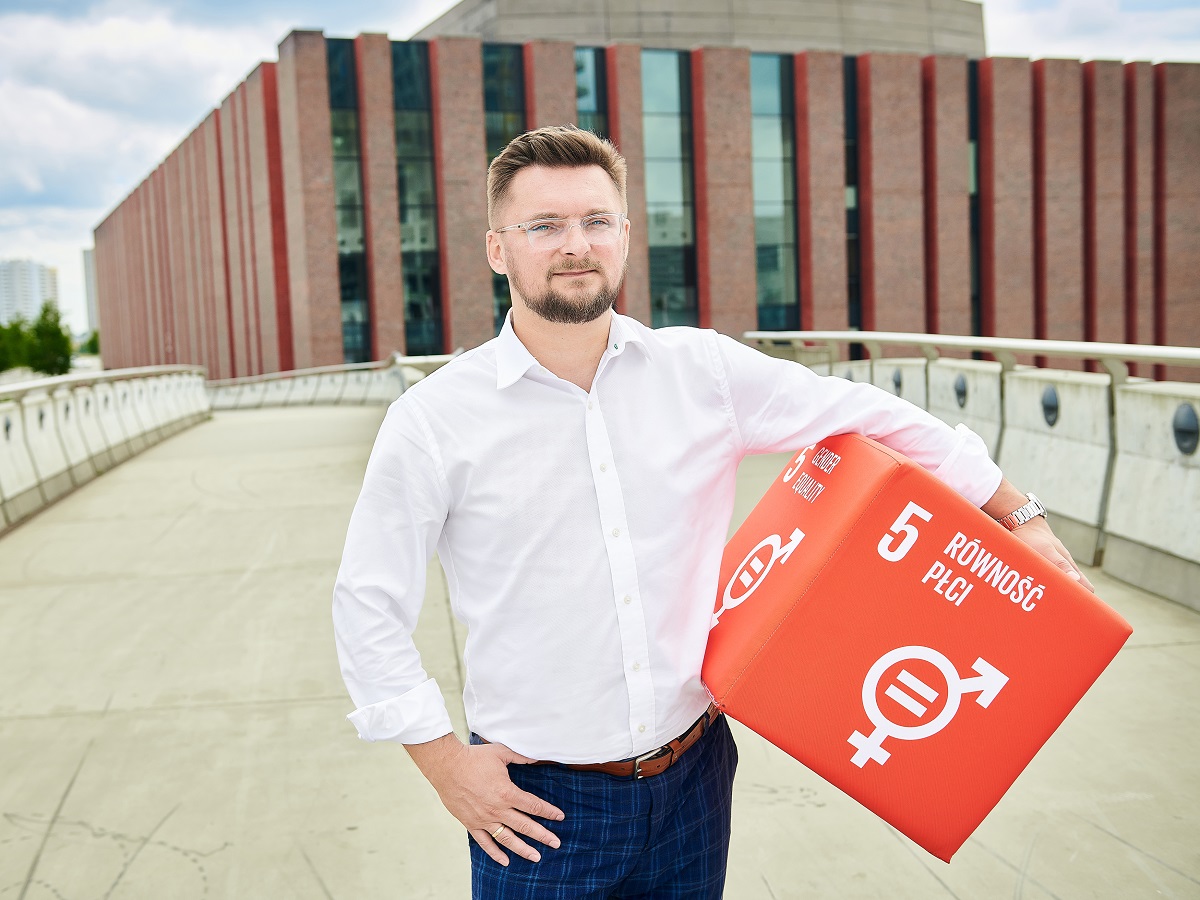
Elimination of all forms of violence
The City of Katowice provides assistance to individuals and families affected by violence. Once the problem is identified, the support plan is interventionist, social, psychological and legal.
Social work for people affected by violence is provided by social workers, family assistants, family foster care coordinators, homeless and disabled person assistants, streetworkers, psychologists, educationalists, therapists, consultants, mediators.
Support includes individual specialist counselling, including legal counselling, group forms of counselling and community visits. In view of the need to ensure the safety of victims of violence, the Centre provides shelter for people who cannot stay in their place of residence due to their difficult situation. Assistance in the form of crisis intervention and crisis therapy is also provided.
Psycho-education group for victims of violence
The aim of the classes is to gain support and knowledge about the possibilities of protecting and addressing violence in legal, psychological and social terms. An Education and Correction Programme for people with anger, aggression and violence problems is also being implemented.
The Municipal Social Welfare Centre in Katowice also cooperates with the Municipal Police Station and with representatives of other services and institutions within the framework of the Interdisciplinary Team for Counteracting Domestic Violence.
SOS 4_Szkolenia Otwartych Szans (Open Opportunities Training)
The project is being implemented by the Silesian Technical Academy and aims to improve the professional qualifications of students and teachers. Includes the organisation of internships, career guidance and courses in programming, robot programming, cyber security.
The project runs from 07.2024 to 06.2026 with 200 students and 14 teachers participating.
Jesteśmy różni w szkole równych szans (We are different in an equal opportunities school)
Tadeusz Kosciuszko Primary School No. 11 implements measures to increase pupils' educational opportunities by providing conditions for individual development.
The project includes teaching and levelling classes, speech therapy, pedagogical therapy, development of emotional and social competences and mental health support.
The project runs from 09.2024 to 06.2026 and will benefit 80 students
Presidential Plenipotentiary for Equal Treatment
The Mayor of Katowice has a policy to promote equal treatment and non-discrimination in public, social and economic life.
A Plenipotentiary for Equal Treatment was appointed in 2023 to promote equal treatment, initiate educational activities and cooperate with social partners. Katowice City Hall is also implementing a Gender Equality Plan, including training and awareness-raising activities to integrate an equality perspective into official strategies and policies. In addition, an Equal Treatment Council has also been established.
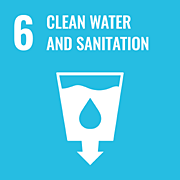
Clean water and sanitation
Ensure access to water and sanitation for all through sustainable management of water resources
Everyone in the world should have access to clean water. We have enough water on our planet to make this happen. However, due to poor management or poor infrastructure, millions of people, mostly children, die every year from diseases related to inadequate water resources, poor sanitation and poor hygiene.
Water scarcity, poor water quality and poor sanitation have a negative impact on food security and livelihoods. They also limit poor families' chances of getting an education.
Today, more than 2 billion people live in areas where there is a risk of limited access to drinking water.
It is estimated that by 2050 at least one in four people worldwide will live in a country affected by chronic or periodic drinking water scarcity. Drought affects some of the poorest regions of the world, which only increases the occurrence of hunger and malnutrition.
The last decade has seen a significant increase in access to drinking water and sanitation, with over 90% of the world's population having access to improved sources of drinking water. To improve sanitation and access to drinking water in developing countries, sub-Saharan Africa, Central Asia, South Asia, East Asia and Southeast Asia, there is a need to increase investment in freshwater ecosystem management and sanitation at the local level. (Source: UN)
KATOWICE CITY ACTIVITIES
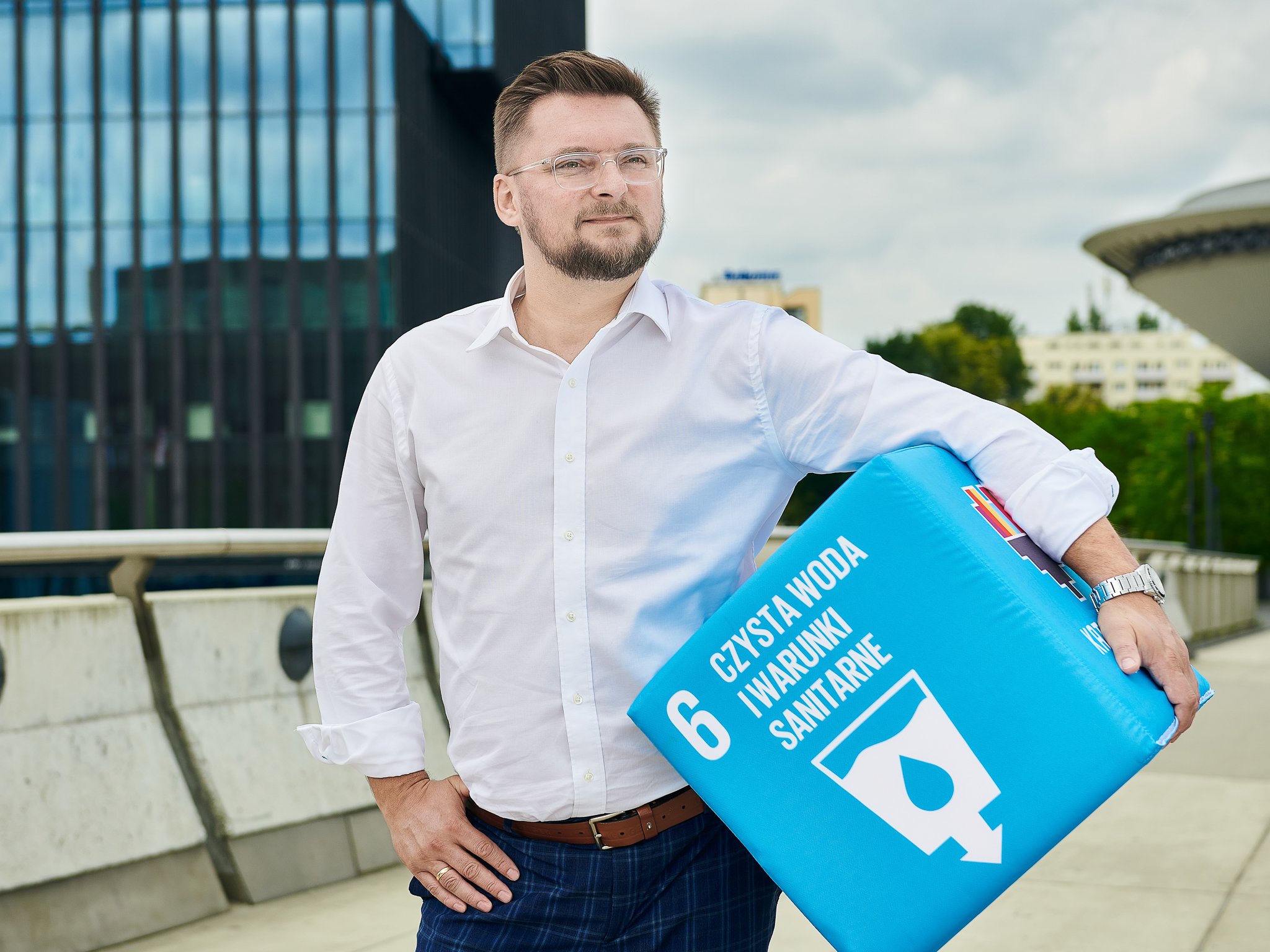
Construction of retention reservoirs
Climate change is one of the greatest challenges that cities must face today. High temperatures, increasingly frequent extreme weather phenomena, droughts and cloudbursts mean that we need to adapt urban centres so that, on the one hand, they reduce the negative impact on the climate and, on the other, they are resilient to the effects of such changes. This is particularly important in the management of water and sewage systems.
Activities related to the expansion of the rainwater drainage system aim to ensure proper rainwater management and retention in order to temporarily delay its outflow and relieve receivers. To date, 26 underground rainwater retention reservoirs have been built in Katowice. The applied construction solutions allow for accumulation of part of the rainwater, which can be used by municipal services, e.g. for watering municipal greenery or flushing the sewage network. For this purpose, water collection systems have been installed in the reservoirs.
An additional advantage of reusing water by municipal services is the reduction of tap water consumption, which translates into financial savings for the City. As a result of observed climate change, further needs for the expansion of the rainwater drainage system, including those aimed at rainwater retention, are identified. The implementation of the plans will improve the condition of the natural environment.
The initiatives related to the development of the rainwater drainage network and elements of blue-green infrastructure have been carried out by Katowickie Inwestycje S.A. as part of two stages of the Project called “Governance of the rainwater management system in Katowice – Stage I and Stage II”, co-financed from the Cohesion Fund under the Infrastructure and Environment Operational Programme 2014-2020. The total value of both stages of the Project amounted to approximately PLN 92.4 million, including the subsidy obtained by the Company, which amounted to about PLN 46.8 million. Katowickie Inwestycje S.A. is looking for sources of funding for further investments in the coming years.
As part of the projects completed in 2023, a total of about 9.5 kilometres of rainwater drainage was built, rebuilt and repaired. The total retention capacity of the completed reservoirs exceeded 11,000 m3. The total area covered by the rainwater management system is more than 3 km2. More than 129,000 people are covered by the rainwater management systems.
“Want a drink? Take a sip of Katowice tap water”
In 2019, in an effort to encourage residents to give up single-use plastic (among others), we launched a social campaign under the slogan “Want a drink? Take a sip of Katowice tap water”. We have engaged local businesses in the campaign, including selected cafes and restaurants which serve free tap water. The City Hall was the first institution to phase out water in plastic bottles and dispensers and install water drinkers. The sign of participation in the campaign is a sticker with the campaign logo.
The campaign is conducted in partnership with Katowice Waterworks. An element promoting drinking tap water was the original water maker (saturator), from which people could drink water, also with juice, on the Market Square in the summer of 2019; the device also appears at many events. According to the idea, the goal-oriented actions should “support and strengthen the participation of local communities in improving water resources management and sanitation infrastructure”. By drinking tap water, not only do we reduce plastic production, but also we realise what a luxury it is to have access to drinking tap water, while so many people on earth suffer from its scarcity. We are learning to treat mains water as equally valuable as the water we buy in bottles at the store.
Let’s Catch Rainwater
Municipal Housing Company (KZGM), as part of the “Let’s Catch Rainwater” campaign, installed more than 30 rainwater tanks in the residential buildings under its management. The tanks can hold an average of 210-350 litres of rainwater which will be used for watering plants in the courtyards and squares adjacent to the buildings. Water scarcity is a serious problem, but every small step towards eco-responsibility matters and through this campaign we want to encourage other managers, homeowners and residents to save water”.
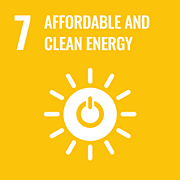
Affordable and clean energy
Ensure access to affordable, reliable, sustainable and modern energy for all
Overcoming challenges and seizing numerous opportunities in today's world involves access to energy. It is essential for jobs, security, climate change, food production or efforts to increase national incomes.
New economic opportunities and jobs can ensure universal access to energy, improved energy efficiency and the diffusion of renewable energy. They will also contribute to creating more sustainable and inclusive communities as well as increasing resilience to the effects of climate change.
Today, around 3 billion people lack access to clean cooking fuel and are exposed to dangerous levels of air pollution. In addition, slightly less than 1 billion people do not have access to electricity. As many as 50% of them live in sub-Saharan Africa. In the last decade, some progress has been made in the use of renewable sources of electricity from water, solar and wind power, and the ratio of energy consumed per unit of GDP is also declining.
However, this problem is far from being solved. Access to clean fuels and technologies should be increased, as well as the use of renewable energy in buildings, transport and industry.There is also a need to increase public and private investment in energy and to place greater emphasis on regulatory frameworks and innovative business models in transforming the world energy systems. (Source: UN)
KATOWICE CITY ACTIVITIES
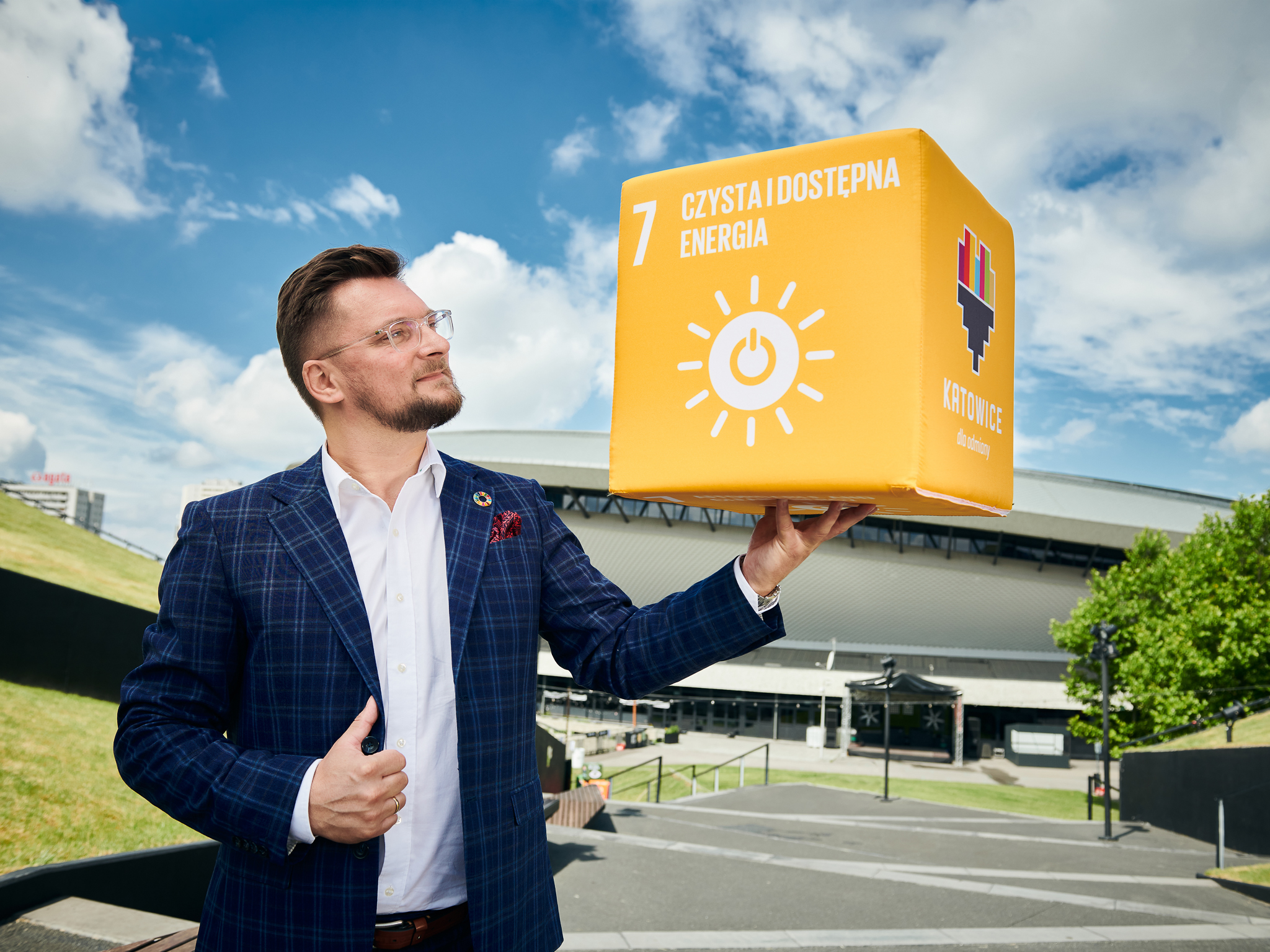
Provision of earmarked subsidies from the Katowice city budget
The City of Katowice provides targeted grants for changing heating systems of up to PLN 10,000, not exceeding 80% of eligible costs, and up to PLN 6,000, not exceeding 50% of eligible costs.
Grants are provided for the change of heating system for individuals, housing communities, legal entities and entrepreneurs with dwellings where coal was used for heating purposes. The implementation of the aforementioned task since 2017, is subsidised by the Provincial Fund for Environmental Protection and Water Management in Katowice (WFOŚiGW).
By the end of 2024, the replacement of nearly 10,500 unecological heat sources for a total of PLN 89.4 million was subsidised, and the installation of more than 1,985 renewable energy sources for more than PLN 12.1 million was also subsidised.
Śląskie. Przywracamy błękit. (Silesia. Bringing back the blue) Comprehensive implementation of the air protection programme for the Silesian Voivodeship
Katowice is one of the cities participating in the LIFE project “Silesia. Bringing back the blue”. This is the largest area-based project in Europe focused on air protection measures.
The main objective of the project is the efficient and effective implementation of the provisions of the “Air Protection Programme for the Silesian Voivodeship”, which was adopted by the Sejmik of the Silesian Voivodeship in 2020. It involves the development and implementation of remedial measures, the implementation of which is to lead to an improvement in air quality and a reduction in the adverse impact of air pollution on the health and life of the inhabitants of the Silesian Voivodship.
The project can benefit from the assistance of a Community Energy and Climate Coordinator. The tasks of the “Eco-advisor” include:
- advice on the selection of heating equipment
- use of renewable energy sources and measures to improve the energy efficiency of buildings
- advice on available sources of funding
- coordination of information and education activities
The Silesian Voivodeship is the Project Leader. In addition to the Leader and the City of Katowice, 88 other Partners are jointly involved in the project - including 79 municipalities, cities and districts and 9 supporting and content-related institutions.
The project runs from 01.2022 to 12.2027
Implementation of the “Czyste Powietrze” (Clean Air) Programme
A COMMUNITY CONSULTATION AND INFORMATION POINT for the “CLEAN AIR” programme operates in the Municipal Energy Centre in ul. Młyńska 2b, where it is possible to obtain assistance in completing and sending to the Voivodeship Fund for Environmental Protection and Water Management in Katowice the applications for subsidies and applications for payment from the "Clean Air” programme.
This facility is available to all residents of Katowice applying for the basic, increased and highest funding ranges. The centre’s activities included 283 applications for funding.
Implementation of the Government Programme “STOP Smog” in cooperation with the GZM
Katowice, together with GZM and 11 other municipalities, is implementing the government programme STOP SMOG.
The aim of the Programme is to reduce pollutant emissions, improve air quality and improve the energy efficiency of single-family buildings by implementing low-emission projects (including the replacement of inefficient coal-fired boilers, cookers and insulation of buildings, replacement of window and door frames) for the benefit of the least affluent households.
In accordance with the agreement concluded with GZM, 25 low-emission projects will be implemented in single-family buildings in the City of Katowice. The projects will be carried out in 10 single-family buildings owned by the City of Katowice and in 15 single-family buildings owned by private persons who meet the criteria of the Project's selection rules.
The project is scheduled to be implemented in Katowice between 2022 and 2025. The material implementation of the project will take place in 2025.
Implementation of the ELENA project in cooperation with the GZM
The City of Katowice, together with 30 other stakeholders, has signed an agreement related to the implementation of the ELENA programme, which has received funding from the European Ban allows for the improvement and improvement of the quality of life of the residents in the tenements covered by the investments, by increasing the energy efficiency of the buildings, which will translate into savings for the residents of the buildings.
As part of this project, the City of Katowice has pledged to carry out technical documentation for 6 residential buildings for their comprehensive thermomodernisation. Tangible implementation of the project is scheduled for 2023-2027.
Monitoring system for energy and water carriers with control capabilities in public buildings in the city of Katowice - SMIS
This is a target energy management system that is an extension of the building energy carrier monitoring system that has been in place since 2012.
The SMIS aims to monitor and analyse the energy situation in public buildings. The functioning of the system includes, among other things, electricity meters, heat meters, water meters, controllers for heat substations, controllers for air handling units, controllers for boiler rooms and additional temperature sensors in public buildings. The commissioning of the system was preceded by several years of preparation in the design and implementation of the building automation components.
The target is that 71 public buildings will be covered by monitoring in 2024. The implementation of the system was preceded by a building inventory allowing, among other things, the total cost of implementing and maintaining such a system to be determined. The aim of the project is to monitor the full energy situation in public buildings and analyse them in order to optimise energy and water consumption with a view to maintaining optimum comfort. The functioning of the utility and water monitoring system includes, among other things, selected electricity meters, heat meters, water meters, controllers for heat substations, controllers for air handling units, controllers for boiler rooms and additional air temperature sensors located inside buildings.
The cost of the entire project between 2021 and 2024 is over PLN 1 million. As part of the development of the system, appropriate building automation systems are being designed in all buildings planned for thermal modernisation in the coming years, including additional comfort sensors, building control and measurement equipment and automation for monitoring and controlling the heating and ventilation systems. It is planned to further develop the system in the coming years by connecting new buildings and implementing new functionalities.
Increasing electricity generation from renewable sources in public buildings in the City of Katowice.
In 2024, as part of the “Katowice - Zielona Energia - etap I” (Katowice - Green Energy - Stage I) Project, the implementation of RES installations was completed on the site of the Primary School No. 21 - Sports Hall in ul. Malczewskiego 1 and the completion of RES installations is planned for the sites of the Katowice Music Education Centre “Dom Kilara (Kilar’s House) in ul. T. Kościuszki 165 and the Witos MDK in ul. Kwiatkowskiego.
As part of a task related to the development of RES in public buildings, applications for funding were submitted under the measure “Development of dispersed energy based on renewable energy sources” of the European Funds for Silesia 2021-2027 programme for the installation of photovoltaic installations for the following location projects:
- Municipal Stadium in Katowice
- Hala Widowiskowo-Sportowa Spodek in Katowice
- Międzynarodowe Centrum Kongresowe in Katowice
A proposal was also submitted under the title “Increasing electricity generation from renewable sources in public buildings in the City of Katowice” covering 7 buildings:
- Katowice City Hall, ul. Młyńska 4,
- Katowice Municipal Cemeteries in ul. Murckowska 9,
- District Labour Office in ul. Pośpiecha 14,
- MDK “Bogucice-Zawodzie” in ul. Markiefki 44a,
- Jantor I and Jantor II ice rink in ul. Nałkowskiej 10,
- MOSiR “Słowian” in ul. 1 Maja 99,
- MOSiR “Szopienice” in ul. 11 Listopada 16.
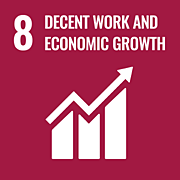
Decent work and economic growth
Sustained and inclusive economic growth can drive progress, create decent jobs for all and improve living standards.
COVID-19 has disrupted billions of lives and endangered the global economy. The International Monetary Fund (IMF) expects a global recession as bad as or worse than in 2009. As job losses escalate, the International Labor Organization estimates that nearly half of the global workforce is at risk of losing their livelihoods.
Even before the outbreak of COVID-19, one in five countries – home to billions of people living in poverty – were likely to see per capita incomes stagnate or decline in 2020. Now, the economic and financial shocks associated with COVID-19—such as disruptions to industrial production, falling commodity prices, financial market volatility, and rising insecurity—are derailing the already tepid economic growth and compounding heightened risks from other factors.
KATOWICE CITY ACTIVITIES
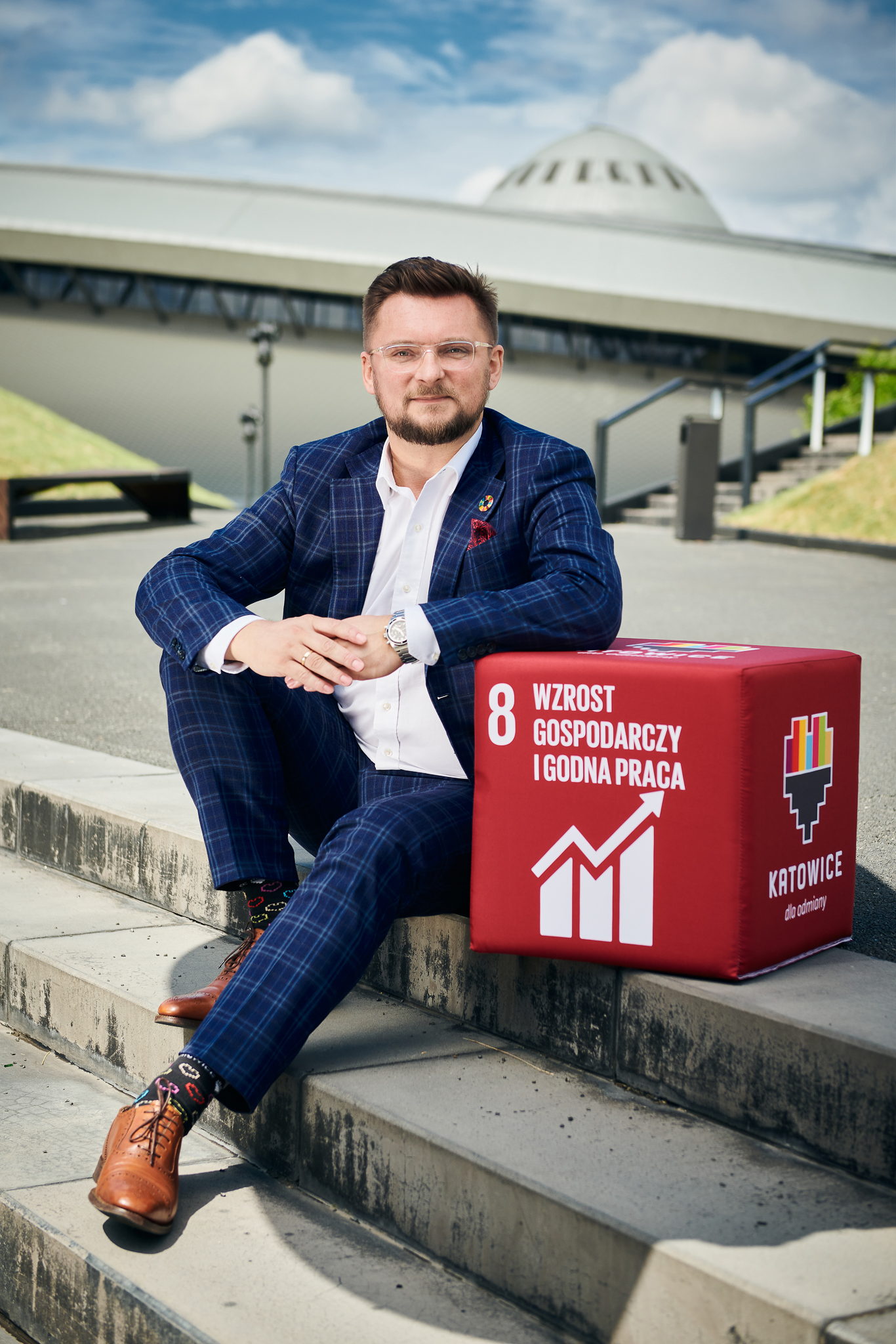
Miejski Inkubator Przedsiębiorczości Rawa.Ink (Rawa.Ink City Business Incubator)
The City Business Incubator supports activities to accelerate the development of a new economy implementing technological innovations generated by entrepreneurial and R&D potential. The incubator creates a friendly environment for the development of entrepreneurship with a particular focus on the small and medium-sized enterprise (SME) sector and start-ups.
The Incubator's activities also support the building of a platform for cooperation between local government, universities, business and the local community.
The City Incubator is also a place where support is provided for those intending to start their own business. A key aspect is to help start-up or established businesses by providing a place to start up and operate a business under market conditions, as well as gaining wide access to the support tools developed to develop entrepreneurship and implement innovation.
Rawa.Ink in 2024 led the projects: Kopalnia Startupów, Katowice Miastem Fachowców, Fabryka Zrównoważonych Praktyk Przedsiębiorczych, Katowizje, Praktyczna Lekcja Przedsiębiorczości, Innowacje w bitach. Graj. Koduj. Łącz., Katowice 4GOAL 2024, Biznes i Zarządzanie, Podcast by Rawa.Ink.
Fabryka Zrównoważonych Praktyk Przedsiębiorczych (Sustainable Enterprise Practices Factory)
Katowice is part of an international project called the Sustainable Enterprise Practices Factory. The following cities are participating in the project: Saint-Etienne (France), Sierre (Switzerland), Monastir (Tunisia), Tamtave (Madagascar). The project is implementing activities that respond to 3 challenges:
- Exchange of good entrepreneurial practice - internationalisation. The challenge includes the International Business Incubator, which facilitates study visits and business missions to network cities for SME companies and start-ups. Companies receive logistical and organisational support and a place to work in one of the business incubators operating in the network cities.
- Sharing of good practices and creation of new tools for industry education. The challenge primarily involves the exchange of branch schools. For the moment, it is taking place in areas such as gastronomy and hospitality as well as fashion and design in the broadest sense. Work is underway to expand cooperation into further areas of exchange related primarily to green and passive construction.
- Exchange of good practice in the social economy and inclusion. As part of this challenge, an exchange of organisations that deal with the social economy in its broadest sense is being implemented. Participants in the project primarily share practices in developing business models for social economy entities.
In November 2024, an exchange took place between interested beneficiaries of Katowice's “Lokal na Kulturę” (Space for Culture) programme and partners from the city of Saint-Étienne. The aim of the initiative was to share experiences in running grassroots initiatives and to learn about the operation of innovative places that integrate and animate local communities. The programme takes into account both initiatives by the City of Saint-Etienne to support social action and social economy actors, as well as grassroots projects implemented in specific neighbourhoods of the city to improve the quality of life, integration and activation of residents.
Katowice Miastem Fachowców (Katowice as a City of Professionals)
Katowice as a City of Professionals is a programme designed to encourage young people facing the choice of a further education path to take up training at trade and technical schools by showing them attractive career prospects. Moreover, the programme is intended to increase public knowledge and awareness of the dual education system and showcase the rich offer of the city of Katowice in terms of career opportunities.
The next edition of the programme is currently underway for the 2024/2025 school year. As part of which more than 1,500 7th grade primary school pupils will take part in study visits to the programme's partners - Katowice-based entrepreneurs. Study visits are a key module of the programme, after which students visit trade and technical schools training in the professions covered by the company study visits. The final stage of the programme is the concluding educational lessons conducted as part of the school activities.
The partners of the 6th edition of the Katowice City of Professionals programme were: Alstom Polska S.A., Hotel Marysin Dwór S.A., Koleje Śląskie Sp. z o.o., NDI S.A., ORBIS S.A. Oddział Hotel Novotel Katowice Centrum, PKM Katowice Sp. z o.o., Qubus Hotel Managment Sp. z o.o., Rockwell Automation Sp. z o.o., Sieć Badawcza Łukasiewicz – Instytut Technik Innowacyjnych EMAG, Stosowanie Maszyn Tadeusz Szwajca, Tauron Polska Energia S.A., Tramwaje Śląskie S.A., Śląska Izba Turystyczna.
The programme has been implemented periodically since 2018. In the five editions of the programme to date, almost 5,000 primary school students have participated, 240 study visits to companies and nearly 260 visits to first-level trade and technical schools have taken place, and 38 letters of intent have been signed.
“Postaw na rozwój - podnieś kwalifikacje” (Set your sights on development - raise your qualifications)
The aim of the project is to acquire, improve or adapt competencies and qualifications necessary in the labour market among people employed in Katowice through the realisation of high-quality training courses and courses in the period from 1 September 2024 to 31 August 2026. The training courses are aimed at 150 people working in the city, employed on the basis of short-term contracts or civil law contracts. Project participants, in accordance with their Individual Action Plan (IPD), indicating the desired qualifications, can benefit from the following areas of training: preparing for certified examinations, improving vocational qualifications and skills, IT, soft skills, improving skills necessary to take up employment in the green economy sector and improving skills necessary for local specialisations.
The result of this form of support is the professional and social activation, as well as the adaptation of the project participants' professional qualifications to meet the needs of the local labour market and the preferences of employers by improving the quality of human resources.
Project co-financed by the European Funds for Silesia 2021-2027 under the European Social Fund.
Investor Services Department
The department is tasked with promoting the city's potential, attracting capital and business. Investors make up one of the most important industries in the city, constantly growing and evolving, i.e. the modern services sector, a sector that is one of the main employers in terms of the number of people employed.
For the most part, they are global companies with a high standard of work, building an open and inclusive work culture that fosters the development of people and organisations. Equality, diversity and inclusivity are core values of companies in the modern services sector. The fact that the sector has such a strong presence in Katowice has a direct impact on the market and work culture in Katowice, making employees' expectations of equal treatment and work culture higher.
The Investor Services Department also supports investors in CSR activities provided for the benefit of Katowice's residents (e.g. pro-environmental activities, neighbourhood cleaning, NGO support, joint social media campaigns, etc.) and educational activities (e.g. FUJITSU-Tech, Kyndryl Future Achievers projects), as well as activities under the equal treatment policy.
Promotion of entrepreneurship
The City provides one-off funds for starting a business, reimburses the costs of equipment or retrofitting a workplace. It is possible to obtain even more than PLN 40,000 in funding.
katowice.praca.gov.pl
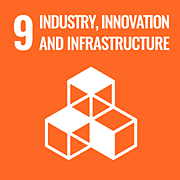
Industry, innovation and infrastructure
Inclusive and sustainable industrialization, together with innovation and infrastructure, can unleash dynamic and competitive economic forces that generate employment and income. They play a key role in introducing and promoting new technologies, facilitating international trade and enabling the efficient use of resources.
However, the world still has a long way to go to fully tap this potential. Least developed countries, in particular, need to accelerate the development of their manufacturing sector if they are to meet the 2030 target, and scale up investment in scientific research and innovation.
Global manufacturing growth has been steadily declining, even before the outbreak of the COVID-19 pandemic. The pandemic is hitting manufacturing industries hard and causing disruptions in global value chains and the supply of products.
Innovation and technological progress are key to finding lasting solutions to both economic and environmental challenges, such as increased resource and energy-efficiency. Globally, investment in research and development (R&D) as a proportion of GDP increased from 1.5 per cent in 2000 to 1.7 per cent in 2015 and remained almost unchanged in 2017, but was only less than 1 per cent in developing regions.
In terms of communications infrastructure, more than half of the world’s population is now online and almost the entire world population lives in an area covered by a mobile network. It is estimated that in 2019, 96.5 per cent were covered by at least a 2G network.
The coronavirus pandemic has revealed the urgent need for resilient infrastructure. The Asian Development Bank notes that critical infrastructure in the region remains far from adequate in many countries, despite the rapid economic growth and development the region has experienced over the past decade. The Economic and Social Survey of Asia and the Pacific highlights that making infrastructure resilient to disasters and climate change will require an additional investment of $434 billion per year. This sum may need to be even greater in some subregions, such as the Pacific small island developing states.
KATOWICE CITY ACTIVITIES
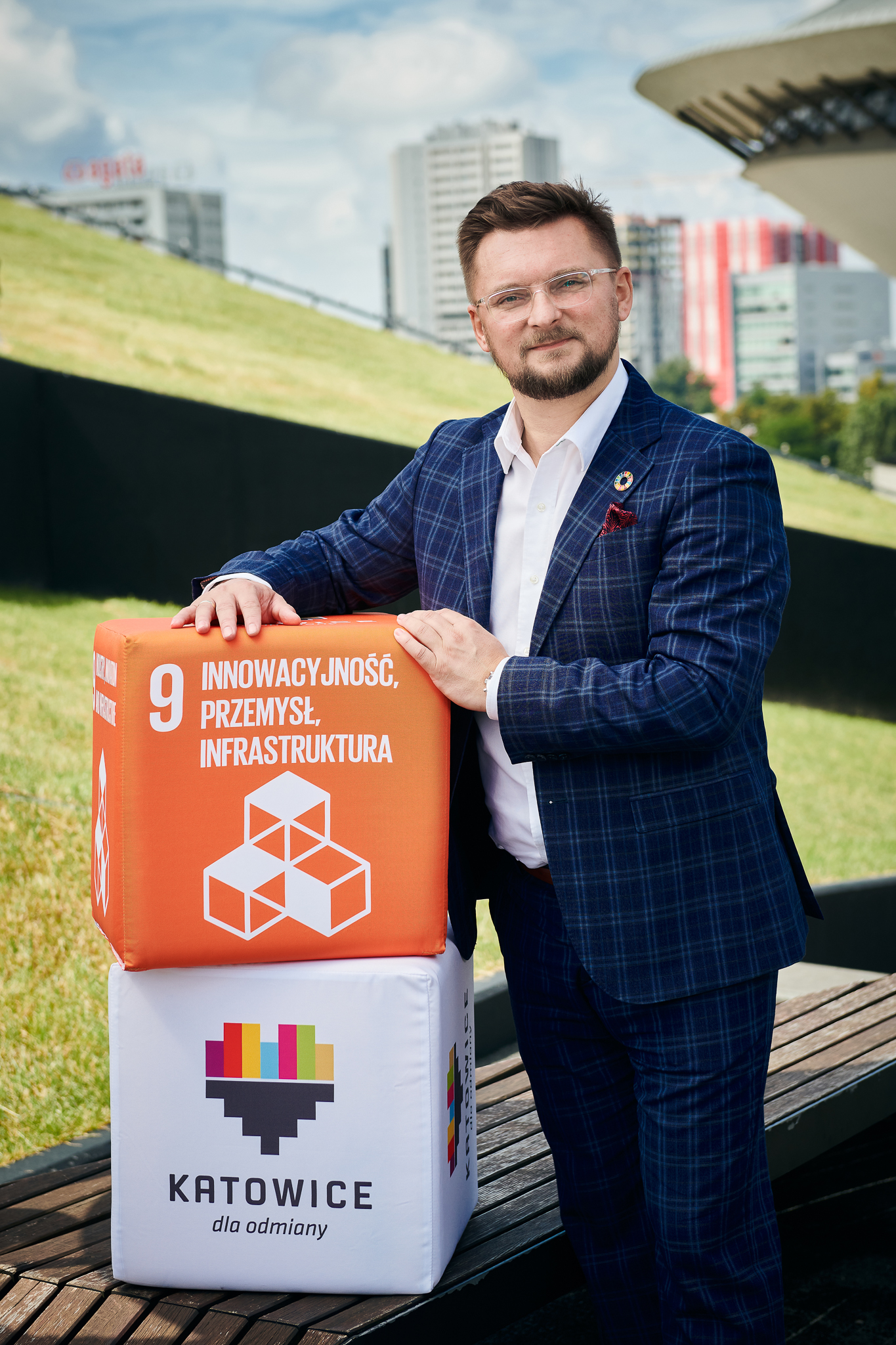
Katowice Gaming and Technology HUB
One of the key investments being made by the City of Katowice is a gaming and technology HUB. In the historic district of Nikiszowiec, on the site of the decommissioned “Wieczorek” coal mine, following the reclamation of the contaminated area and the revitalisation of historic buildings, infrastructure will be created to bring together entrepreneurs from the IT sector. It will be a shared space for technology companies, game developers and the e-sports community involved in organising games, tournaments and broadcasting gaming events. The idea behind the HUB is to foster innovation, provide a favourable development environment for SMEs and attract new companies in the sector and concentrate potential in one place.
Kopalnia Start-upów (Start-up mine)
“Start-up mine” is a competition aimed at identifying young, promising and innovative Katowice-based companies. The competition has made it possible to diagnose the local start-up environment and is an important element in building an innovation ecosystem in Katowice. The 2024 competition was open to residents and students who operate on a day-to-day basis throughout the Upper Silesian and Zagłębie Metropolis, as well as innovative companies and entrepreneurs who have been in business for no longer than five years. The evaluation of the submitted projects was carried out by a team of experts, business practitioners and representatives of research units. The projects were assessed in terms of innovation, business and market potential and the team's preparedness to implement the innovation. The finalists also received substantive support in the form of a two-day bootcamp, which included classes on business modelling and preparing pitch deck investor presentations. The prize pool for the fourth edition of the competition amounted to PLN 100,000, including desk rental packages in the individual work zone of the Rawa.Ink Municipal Business Incubator for two years.
Business tourism market in Katowice continues to grow
More than PLN 236 million was spent in Katowice in 2023 by attendees of business events and conference meetings, of which there were more than 730,000 throughout the year. The amount of total spending by business event attendees in 2023 is higher than before the COVID-19 pandemic, when there was a record number of people attending events in Katowice (more than 1 million people in 2019, who left more than PLN 209 million in the city).
The business-friendly atmosphere is conducive to business tourism. Katowice and the Silesian Voivodeship remain the most attractive region in Poland in terms of investment. - In last year's ranking by fDI Inteligence Magazine, our city ranked sixth among European cities in terms of attractiveness for foreign direct investment, recalls Mayor Marcin Krupa - Importantly, we also won second place in the ranking of the best provincial cities to live in, and we are the fourth most attractive city in Poland for students, adds the mayor.
Katowice's transformation over the years, confirmed many times by high rankings
and titles received by the city (e.g. UNESCO Creative City of Music, European City of Science 2024), means that the capital of the Silesian Voivodeship remains at the forefront of urban centres attractive to the business market.
Innowacje w bitach. Graj. Koduj. Łącz! (Innovation in bits. Play. Code. Connect!)
The second edition of the project took place in 2024. The initiative of the Rawa.Ink City Business Incubator enabled a series of 30 workshops to be organised in six primary and secondary schools in Katowice by the winner of the second edition of the “Start-up mine” competition, i.e. Little Bit Academy. Pupils were able to gain practical knowledge about video game design, programming and career opportunities towards the IT market, and teachers knowledge about the use of games in education and new educational tools.
During the project, participants gained practical skills in programming, game design and the use of modern digital tools. The process of creating the games sparked the creativity of the participants, encouraging them to express their own ideas and solutions. Working together in teams helped to develop interpersonal, communication and teamwork skills. The project inspired the participants, opening up new perspectives related to technology and the games industry. During the project, students and teachers had the opportunity to use tools such as Roblox Studio (LUA game and script development), Miro and Google Drive. In addition, teachers were introduced to the possibilities of using the ChatGPT (AI) tool in education.
Initiatives related to the development of video games and education on their design and implementation in schools are of great interest to children and young people. They also allow a broader view of the field. Investment in modern forms of education brings tangible benefits to the local community, making a valuable contribution to the development of the skills and creative potential of the younger generation.
Competition “Katowice4GOAL”
From 9 September 2024, children and young people from Katowice's schools and student sports clubs were able to take part in the second edition of the “Katowice 4GOAL 2024” competition. 4GOAL.app is a Katowice-based start-up that has created a social networking app that allows users to share short football videos. Users of the app can not only post their own football progress, but also take on challenges prepared by experts. The app has already been awarded the Mobile Trends Award, and the team took part in the accelerator programme of the Polish Football Association, where it made it to the final 11. 4GOAL.app is also a finalist in the city's “Start-up mine” competition.
The students measured themselves in creating tasks for the participants of the “Challenge 4GOAL.app”, which were to be simple football challenges such as a training element, a play or a technical trick. For other residents, the organisers prepared a challenge in the form of a competition in which a task performed by an expert had to be recreated in a place characteristic of Katowice. If anyone did not feel up to playing ball, they could take part in the third “Kibic Fair Play” (Fair Play Fan) challenge. The competition involved nearly 1,000 users who submitted interesting and creative videos and rated and commented on them.
The project is an example of the use of new technologies that are socially responsible and, in this case, encourage the youngest to participate in sport.
Startups Networking & Innovations Platform
The Startup Networking & Innovations Platform (SNIP) project consists of the organisation of nine thematic events in Katowice and other cities in the region. SNIP is an initiative that aims to foster collaboration between startups, industry and experienced business and local government. The project is intended to bring out the potential of Silesian industry and spread its innovative wings, especially in times of economic transformation in the region. This is a series of meetings where the sharing of knowledge and experience will be intertwined with the building of valuable business relationships. The abbreviated name of the project is SNIP, which is a fantastic opportunity to integrate the community of innovators with entrepreneurs in the Silesian Voivodeship to bring out the full potential of the region. The initiative is organised by the Silesian Startup Foundation and co-organised by: Marshal's Office of the Silesian Voivodeship, inSilesia, the Katowice Special Economic Zone, the City of Katowice and the Rawa.Ink City Business Incubator.
Podcast by Rawa.Ink
The Rawa.Ink Municipal Business Incubator's original podcasts are recorded in the podcast studio at Rawa.Ink, equipped with the highest quality audio recording equipment. The podcasts are dedicated to entrepreneurship, business, innovation, the start-up ecosystem and more. You can listen to them every other Thursday on the Spotify platform. The podcasts contribute to animating and activating the community of innovators in Katowice.
IoT Innovation Showroom
To facilitate access to technology and widen the availability of solutions for those interested in technologies related to the Internet of Things, artificial intelligence and cyber security, the first IoT Innovation Showroom was established in 2021. The showroom is a cyber-physical space available at the Rawa.Ink City Business Incubator (Teatralna 17a). This is a great opportunity, not only for the IoT sector in Poland to showcase its achievements, but also for local governments and SME companies to learn about the technological innovations and solutions on offer that they can use right now.
The aim of the showroom is also to integrate technology companies and provide opportunities to test proposed solutions and training. In the centre of Katowice, among other things, it is possible to see how satellite information assists cities in responding to meteorological factors, and how sensors inform residents about the current state of the city's air. The IoT showroom takes a closer look at cyber security technologies and the topic of artificial intelligence. The showroom is consistently supplemented with new solutions in cooperation with the Polish Internet of Things and Artificial Intelligence Cluster SINOTAIC. A network of IoT Innovation Showrooms is being consistently developed by the SINOTAIC cluster, which have been established in Gorzów Wielkopolski, Gdynia and Opole. Two so-called living labs in Kamienna Góra and Jelenia Góra are also available to showroom users.
Katowice City break application
Visit and discover the beauty of our city! Tourists visiting Katowice and our residents can use the application - City Break - which, once downloaded to their mobile devices, will guide them through Katowice's most important tourist attractions. It allows visitors to experience, among other things, selected works of Street Art, Functionalist architecture on the Route of Modernism, or to feel the post-industrial atmosphere of magical Nikiszowiec.
There is also no shortage of Katowice beboks - users of the app are encouraged to have fun exploring the city space while looking for these friendly creatures. In addition to the standard audio guide function, users can also take part in quizzes to test their knowledge of the attractions they have learned about. The app is available free of charge for Android and iOS devices.
Feel free to download the free app and discover Katowice.
Miejski System Zarządzania – Katowicka Infrastruktura Informacji Przestrzennej (Municipal Management System - Spatial Information Infrastructure of Katowice MSZ-KIIP)
Katowice has a Municipal Management System - Katowice Spatial Information Infrastructure (MSZ-KIIP). It is estimated that as much as 80-90% of the information that is used in public administration is spatially referenced and can be located on a map, e.g. based on an address, geographical coordinates or a plot number.
Thanks to the data collected in the system in the form of thematic layers (such as parcels, buildings, roads, local zoning plans, address points, etc.), information about a specific area can be analysed in an interdisciplinary manner.
In 2024, there were more than 135,000 external accesses to the system, indicating an increase in interest in the MFA-KIIP system compared to previous years.
Naprawmyto.pl
Naprawmyto.pl is an app that allows residents to easily point out faults in the city in four categories of issues: infrastructure, nature, safety and others. To date, we have remediated more than 28664,000 alerts out of 37810 reported since spring 2018. No less important than effectiveness is the ability to follow up or comment on reported issues and propose solutions, as well as direct contact between residents and officials. Innovation in this case therefore concerns not only the use of an innovative tool, but the very formula for cooperation and communication with residents.
The application was developed by NGOs and is also used by other Polish cities on an open source basis. However, Katowice achieved record results in terms of both the number of alerts reported (user activity) and the number of issues resolved.
Katowice Smart Monitoring and Analysis System (KISMIA)
KISMIA is an important tool to support municipal services and improve the safety of residents. Thanks to the use of modern technology and analytical systems, the system enables a faster response to emergency situations and the monitoring of key areas of the city, thus directly increasing the level of security. The system consists of 393 cameras, including 49 cameras recording vehicle registration numbers on the main traffic routes. The cameras are located in public places including family activity zones, after consultation with residents and the relevant services responsible for security and order in the city.
From 2021 onwards, the system's functionality has been enhanced with a service interaction platform, which also allows residents to monitor in real time the state of air pollution, the situation on the roads and the water levels in the rivers within the administrative boundaries of Katowice via a dedicated portal. Thanks to residents who are actively using the Citizens' Budget tool, the system is successively being expanded with new camera points.
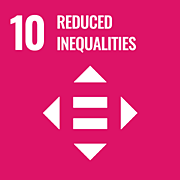
Reduced inequalities
Reducing inequalities and ensuring no one is left behind are integral to achieving the Sustainable Development Goals
Inequality within and among countries is a persistent cause for concern. Despite some positive signs toward reducing inequality in some dimensions, such as reducing relative income inequality in some countries and preferential trade status benefiting lower-income countries, inequality still persists.
COVID-19 has deepened existing inequalities, hitting the poorest and most vulnerable communities the hardest. It has put a spotlight on economic inequalities and fragile social safety nets that leave vulnerable communities to bear the brunt of the crisis. At the same time, social, political and economic inequalities have amplified the impacts of the pandemic.
On the economic front, the COVID-19 pandemic has significantly increased global unemployment and dramatically slashed workers’ incomes.
COVID-19 also puts at risk the limited progress that has been made on gender equality and women’s rights over the past decades. Across every sphere, from health to the economy, security to social protection, the impacts of COVID-19 are exacerbated for women and girls simply by virtue of their sex.
Inequalities are also deepening for vulnerable populations in countries with weaker health systems and those facing existing humanitarian crises. Refugees and migrants, as well as indigenous peoples, older persons, people with disabilities and children are particularly at risk of being left behind. And hate speech targeting vulnerable groups is rising.
KATOWICE CITY ACTIVITIES
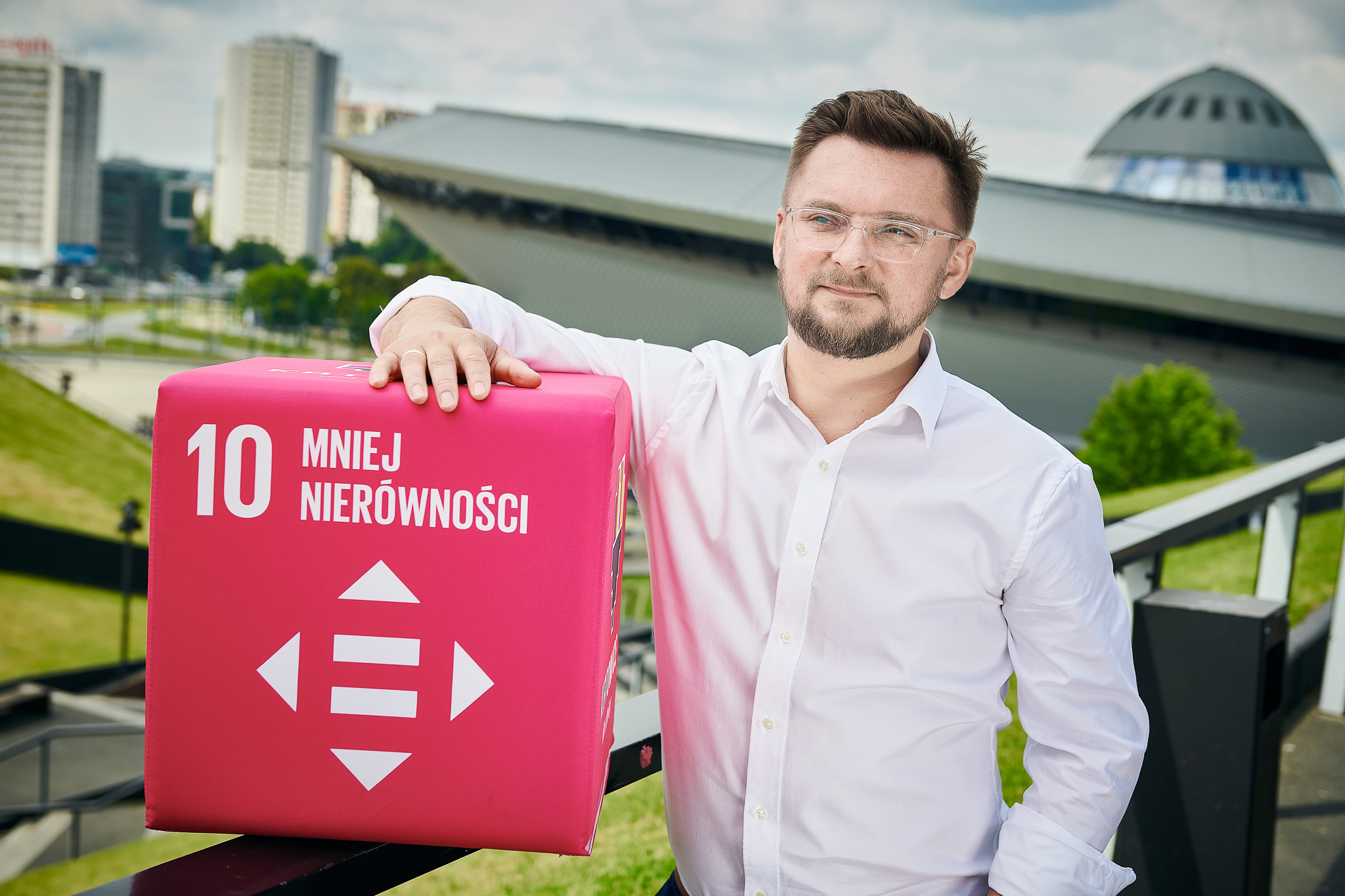
Programme “Katowicki Senior w Mieście” (Katowice Senior in the City”) 2022-2027
The addressees of the Programme are Katowice's senior citizens aged 60 and over. Its main objective is to enhance and improve the quality of life by ensuring that these people have access to appropriate forms of support. The implementation of various projects under the programme is aimed, among other things, at counteracting the loneliness and marginalisation of the elderly, managing the leisure time of those who have reached the end of their working lives, increasing the activity and participation of elderly people in social life, health-oriented and educational activities, and conducting physical culture classes.
Fundacja Rozwoju Ekonomii Społecznej (Incubator for the professional activation of seniors)
The project is a way of helping Katowice's senior citizens: women 60+ and men 65+ to return to the labour market. Thanks to the instruments of the senior bonus and the adaptation bonus, employers interested in employing people of retirement age have benefited from innovative subsidies.
In 2024, 120 people were provided with information, 85 job offers were presented and 35 people expressed a desire to take advantage of the job offers presented. Seniors were offered the assistance of a career counsellor in the following areas: presentation of job offers dedicated to seniors, preparation of application documents, preparation for an interview, recognition of professional predispositions. In June 2024, as part of the Incubator's activities, career counsellors held a workshop for seniors at MDK Giszowiec, where participants were introduced to current job opportunities and were able to learn about the proposed forms of support within the Incubator for the professional activation of seniors.
In addition, career counsellors were actively involved in ongoing initiatives concerning seniors such as: Senior Citizens' Day in Katowice, conferences and various meetings.
The Incubator for the professional activation of seniors, in view of the demographic situation and the changes involved, also aims to raise awareness among employers of the positive effects of employing retired people. Addressing this topic is possible if only in connection with ongoing contact with employers making job offers.
Digital Support Points for Senior Citizens
The project involves free smartphone workshops, as well as computer and tablet counselling. During the three-hour class, seniors learn, among other things, how to operate a smartphone, write a text message or e-mail, send photos to their loved ones, save money on purchases and many other useful functionalities. Participant groups are small and for the duration of the training each senior is provided with a smartphone purchased by the City of Katowice. Training sessions were held in, among others: Municipal Cultural Centres, Day Care Centres, the Social Ministry for Loneliness or the Centre for Non-Governmental Organisations and the Katowice City Hall.
Programme “Asystent osobisty osoby niepełnosprawnej” (Personal assistant for persons with disabilities) for Local Self-Government Units - edition 2024 with funds from the Solidarity Fund (Ministry of Family and Social Policy)
The Municipal Social Welfare Centre obtained funds in the amount of PLN 1,561,159.77 for the implementation of the “Personal assistant for people with disabilities” Programme. In 2024, 124 people benefited from the services of a personal assistant for persons with disabilities, for whom 20,813.50 clock hours of assistants’ services were provided. Responding to the great need for support with personal assistance services for residents with disabilities, additional funding of PLN 350,000.00 from the Katowice city budget was allocated for this purpose, ensuring that an additional 34 people were covered by services to the tune of 4,683 clock hours.
Programme “Respite care” for Local Self-Government Units - edition 2024 from the funds of the Solidarity Fund (Ministry of Family and Social Policy)
The Municipal Social Welfare Centre obtained funds in the amount of PLN 302,532.00 for the implementation of the “Respite care” programme for Local Government Units - 2024 edition within the framework of the Solidarity Fund in the form of day stays or 24-hour stays.
The day care centre provides support in the form of games, activities and walks, general development exercises, social skills training and personal hygiene activities. During the reporting period, 14 people, including seven adults and seven children, benefited from day care for a total of 2,814.50 hours.
The 24-hour stay includes tasks related to daily living, assistance with basic household and personal care activities and spending time together in the form of games, play and educational activities. The aim of the stay is to improve quality of life, support in daily functioning, compensate for deficiencies and assist with educational activities. Between January and the end of September, 25 people benefited from 24-hour stays for a total of 324 days.
Transport services for disabled residents of Katowice
The City of Katowice provides transport services aimed at people with disabilities who are residents of Katowice. Residents are transported not only in Katowice, but also in the neighbouring municipalities from Monday to Saturday from 6.00 a.m. to 10.00 p.m. and on Sundays and public holidays from 8.00 a.m. to 8.00 p.m.
The value of the signed contract for the provision of special transport services for people with disabilities in 2024 was PLN 229,409.80.
Transport for people with disabilities (katowice.eu)
Handbook for people with disabilities “Katowice bez barier” (Katowice without barriers)
The handbook helps people with disabilities find their way to the relevant competent authorities and institutions and enables them to plan leisure activities in accessible places and public buildings. The guide is not only aimed at people with disabilities, but also their families, carers and all those working and acting for their benefit. The Handbook for People with Disabilities “Katowice without Barriers” is operated and updated by the KONTRA Club Foundation.
Tłumacz Migam, Połącz z Tłumaczem (Sign Language Interpreter, Connect with Interpreter)
In order to make it easier for people with hearing impairments to contact Katowice City Hall, a service has been launched to connect online with a sign language interpreter. The service is available at the Municipal Social Welfare Centre and on the Katowice.eu website.
Communication takes place via a video connection on the client's computer/tablet/phone. The sign language interpreter visible on the screen mediates a conversation between the client and the official on a topic of interest within the scope of matters conducted at the Municipal Social Welfare Centre in Katowice.
Minimum technical prerequisites: any computer/tablet/phone device with internet access, equipped with a camera and microphone, with an up-to-date browser installed: Chrome, Firefox, Opera, Safari and MS Edge. The service also works on both Android and IOS mobile devices. The costs of the service, excluding connection costs, shall be borne by the City of Katowice.
Increasing the accessibility of the cultural offer
In 2024, the Galeria Wspólna gallery was created in the space of Katowice Miasto Ogrodów to present the work of Deaf artists in confrontation with hearing artists. Probation is provided by representatives of both communities.
The KMO also undertakes comprehensive measures to make the cultural offer more accessible to people with disabilities. It carried out the project as part of the “Culture without Barriers” project of the State Fund for Rehabilitation of Disabled People. She is currently pursuing NCK training in Universal Cultural Design. As well as improving the competence and sensitivity of the team and ensuring clear communication with our audiences, the Interdisciplinary Accessibility Team has implemented, among other things, the Migam service, portable induction loops and the marking of key locations in the headquarters with Braille plaques.
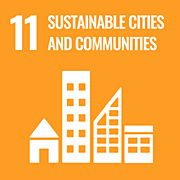
Sustainable cities and communities
The world is becoming increasingly urbanized. Since 2007, more than half the world’s population has been living in cities, and that share is projected to rise to 60 per cent by 2030.
Cities and metropolitan areas are powerhouses of economic growth—contributing about 60 per cent of global GDP. However, they also account for about 70 per cent of global carbon emissions and over 60 per cent of resource use.
Rapid urbanization is resulting in a growing number of slum dwellers, inadequate and overburdened infrastructure and services (such as waste collection and water and sanitation systems, roads and transport), worsening air pollution and unplanned urban sprawl.
The impact of COVID-19 will be most devastating in poor and densely populated urban areas, especially for the one billion people living in informal settlements and slums worldwide, where overcrowding also makes it difficult to follow recommended measures such as social distancing and self-isolation.
The UN food agency, FAO, warned that hunger and fatalities could rise significantly in urban areas, without measures to ensure that poor and vulnerable residents have access to food.
KATOWICE CITY ACTIVITIES
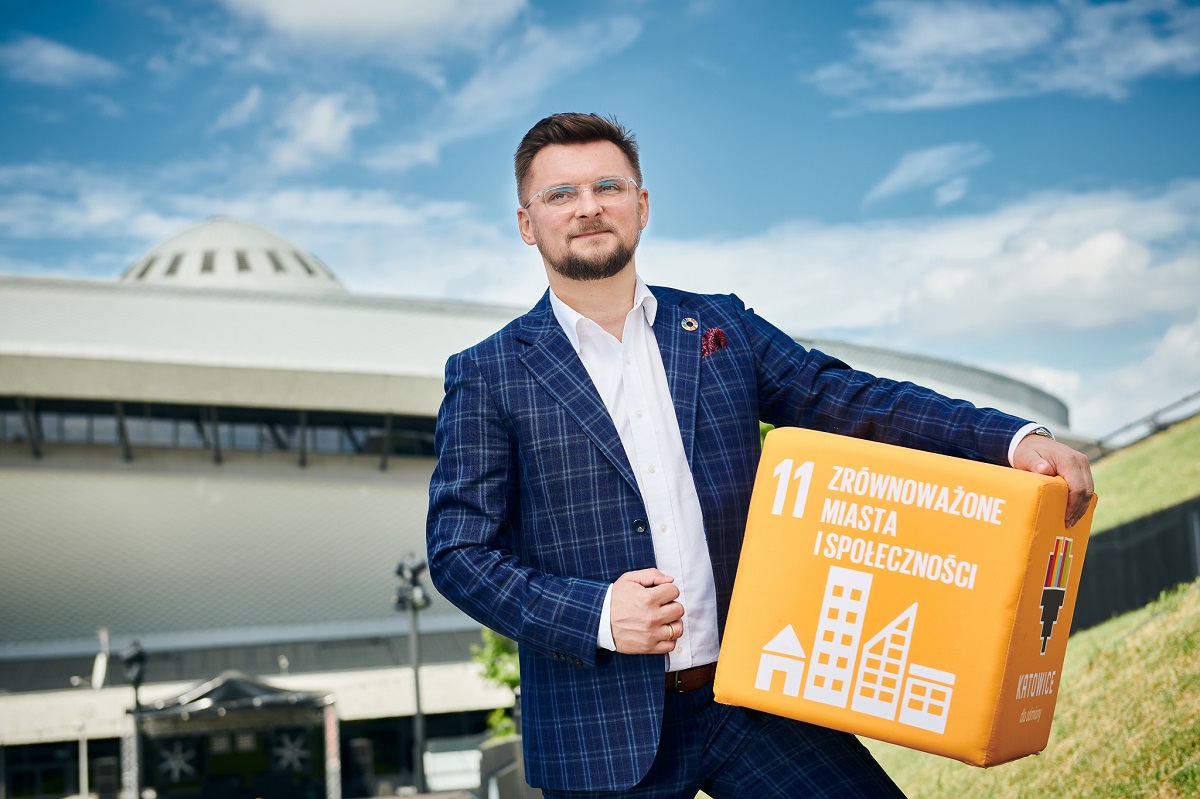
KATOobywatel
The KATOobywatel project is a social innovation to build civil society, involving citizens in activities for the sustainable development of the city. Here, the city plays the role of initiator, gives tools and pretexts for collective engagement, creates actions, campaigns and launches apps to report and fix problems in the city space, for example. Amongst other things, residents work together with the city to sow meadows and build community gardens, clean up and practice zero waste, hang nesting boxes and feeders. The project also included the first parklet in Katowice in ul. Teatralna and the decoration of electrical boxes with artistic graffiti promoting Katowice's modernist architecture. Katowice's partners include non-governmental organisations, city organisational units, institutions, local entrepreneurs and artists. The project won the Transformative Action Award for Transformative Action of the Year 2020, and was also a finalist in the Innovation in Policy 2020 competition in the ecology category. In the same year, it also won a distinction in the Polish Press Agency's “Innowacyjny Samorząd” (Innovative Local Government) competition in the large cities category.
Katowizje - firma społecznie odpowiedzialna (Katowizje - a socially responsible company)
This is a project to identify CSR (corporate social responsibility) leaders among local SME companies that invest, create and implement innovative tools and solutions to serve local communities and the environment.
As part of the fifth edition of the “Katowizje - a socially responsible company” competition, prizes were awarded:
First place and a prize of PLN 3,000 was awarded to 3 Soft S.A. for its activities on behalf of disabled children, the organisation of children's winter holidays, the organisation of the tournament, the purchase of tickets and intra-company auctions, which contributed to helping the charges of the Child and Youth Welfare Organisation “Dom Aniołów Stróżów” (House of the Guardian Angels) and children from orphanages.
It is also a reward for launching a drop under the auspices of the Polish Red Cross to support flood victims. These activities supported actions such as: Akcja Ciacho, Dobro Pączkuje, Podlesianka Cup, Legendarny Kosmiczny Mecz, Anielskie Lato, Wsparcie Rajdu Złombol, Piernikowy Poczęstunek, 3 Soft dla powodzian.
Second place and a prize of PLN 2 000 was awarded to Tetetka Sp. z o.o. for the KatoWerk project.
The company, together with the “Bobrowe Żeremia” Foundation and the “Kurka Wodna” Association, is committed to spreading technical knowledge with a particular emphasis on bicycles. The “Śląski Warsztat Społeczny” (Silesian Social Workshop) was created with access to tools and knowledge. As part of the project, two series of workshops were held for local residents. Educational campaigns are carried out to increase the safety of cyclists.
Third place and a prize of PLN 1,000 was awarded to Bluemed Clinic Sp. z o.o. for the free treatment of wards of the Child and Youth Welfare Organisation “Dom Aniołów Stróżów” (House of the Guardian Angels). The programme consisted of providing ad hoc, free assistance according to need to the Association's charges. As a result, immediate diagnosis was carried out and assistance provided.
Eco You and Eco Me is Eco Us
Katowice, for centuries the capital of heavy industry, coal and smog, as a result of a spectacular transformation has become a good place to live, a city of new technology and science. There is more and more greenery in the city every day, and residents are increasingly aware that the quality of the environment is hugely influenced by our daily habits.
We have observed over the years how environmentally sensitive our investors and their employees are. Hence the idea for a campaign to raise awareness of how simple yet effective it is to change daily routines and help the environment.
This was the aim of the Investor Services Department's project to highlight the environmental efforts of Katowice-based companies and corporations. Showcasing the actions they are taking for the benefit of the local community and explaining what the buzzwords “smart” or “sustainable” mean in practice, and encouraging them to make small changes in their daily lives that turn out to make a big difference to the environment. The campaign revealed, among other things: how to reduce plastic consumption in everyday situations in a practical way, how to switch from a car to a bicycle and how recycling can have many facets. The campaign ran for one month and was conducted on the Linkedin platform. Participants included: PwC Service Delivery Center, Keywords Studios, Honeywell, Concentrix, EPAM Katowice, Sopra Steria, Vialto Partners, LKQ Europe, Rockwell Automation and Kyndryl.
Europejski Tydzień Mobilności (European Mobility Week)
In 2024, Katowice joined the European Mobility Week celebrations for the 14th time. The theme of this campaign was to promote travel using an emission-free mode of transport such as rail. In September 2024, the largest rail investment in the city's history began in Katowice. Three rail-road viaducts have been closed. The most important objective of this project is to add two tracks, thus separating agglomeration and long-distance traffic. The result of PKP PLK S.A.'s investment will be faster and more comfortable rail travel within the conurbation and to the border with the Czech Republic. Inhabitants of the Silesian Voivodship, including the people of Katowice, will gain an attractive offer for travelling by ecological means of transport. Access to trains will be increased, with the construction of three new train stops and the upgrading of five existing ones. The separation of agglomeration and long-distance traffic will increase the number of connections. Modern systems and equipment, meanwhile, will increase the safety level of rail transport.
Restoration of historical monuments in Katowice
The city annually subsidises conservation, restoration and construction work on Katowice's most valuable monuments. In 2024, a grant of PLN 985,970.00 was awarded for conservation work on 7 buildings in Katowice.
In previous years, the subsidies amounted to:
in 2020 PLN 849,996.43
in 2021 PLN 889,093.42
in 2022 PLN 997,004.00
in 2023 PLN 800,000.00
Katowice Intelligent Transport Management System
In December 2023, the Katowice Intelligent Transport Management System was implemented, thanks to which public transport vehicles delayed from the timetable have priority when passing through intersections with traffic lights. The above project was introduced to improve traffic flow and reduce the nuisance caused by excessive vehicle traffic. The system covers all branches of the urban mobility elements ensuring the safety of drivers, pedestrians and cyclists at each of the upgraded intersections. Changes were made to the operation of signalling programmes and brought into line with current legislation. In addition, cycle crossings have been retrofitted with cycle radars and acoustic devices have been installed to support the mobility of visually impaired and blind people in order to counteract social exclusion.
In addition, a web portal was created to obtain information on traffic conditions. Among the data provided are those on traffic volumes, parking space occupancy and current weather conditions, including air pollution. An intermodal journey planner has also been created as part of the portal, enabling journeys to be planned using the most optimal individual and public transport modes on a given route.
The total value of the project /subsidies is PLN 86,520,465.20. ERDF co-financing amounts to 85% of the project value.
The ITS implementation project was awarded on 8 October 2024 in the final of the 14th edition of Professor Wojciech Suchorzewski's ITS LEADER competition in the category “Best implementation carried out by the public sector”. The competition was part of the 16th edition of the Polish ITS Congress.
The ITS system also received a silver award in the finals of the 2024 LivCom Awards for sustainable cities and regions.
Zielony Budżet (Green Budget)
Katowice is investing in the renewal of existing and the creation of new green enclaves, involving residents in these activities. A tool through which residents can realise their needs for ecology and environmental protection in the broadest sense is the Green Budget, where you can turn your ideas into action. In the five editions of the Green Budget, a total of 459 tasks were selected for implementation out of the 967 applications submitted.
Rower Metropolitalny (Metropolitan bicycle)
In February 2024, the Upper Silesian and Zagłębie Metropolis launched the Metropolitan Bicycle system. This system replaced the “City by bike” urban bicycle system previously operating in Katowice. Metrorower is the largest rental system in Poland and the third largest in Europe. Bikes are available in 31 municipalities in the GZM with a total of 7,000 and almost 1,000 bicycle stations. In Katowice, 150 stations and 1,000 bicycles are available to users. Metrorower as part of GZM Transport also appears in the fare - each passenger using a season ticket can use the Metrorower free of charge for 60 minutes a day. The system consists of 4th generation bikes that are not clipped to bike stations.
Cycle paths
The popularity of unicycles, not only for recreational purposes, is increasing, therefore the cycling infrastructure - cycle paths and bike rental stations - is constantly being developed. There are currently 150 urban - metropolitan bicycle stations in the city, with 1,000 vehicles available to residents. Since 2015, 197.9 km of new cycle routes have been built in Katowice at a cost of PLN 60 million.
Katowice is getting closer to the goal of connecting all its districts with a network of safe cycle routes. Among the biggest investments in recent years is the construction of cycle paths:
- Along ul. Francuska - 700 m, cost: PLN 3 million
- in the area of ul. Gospodarcza, Pułaskiego and Dolina Trzech Stawów - 1400 m, cost: PLN 1,1 million
- along ul. Szopienicka - 2,400 m, cost: over PLN 4.5 million
- connection of the Tempo 30 zone area from CP Brynów to the cycle path in ul. Jankego and route 1 - 1400 m, cost: almost PLN 1.9 million
- connection along ul. Lotnisko - 1100 m, cost: over PLN 1.6 million
- along ul. Hallera - 1400m, cost approx. PLN 6 million
- along ul. Korczaka - 800 m, cost approx. PLN 3 million
- Mysłowicka / Kolista - 430m, cost approx. PLN 3.7 million
- along ul. Graniczna - 745 m
- along ul. Grota Roweckiego - 200m
- connection of ul. Meteorologów with ul. Francuska - 550m
- along ul. Meteorologów - 500m
In addition to the cycle paths, numerous facilities for cyclists have been created, such as a number of cycle crossings, an exit under the Ziętek roundabout, a contra-lane on ul. Kozielska, cycle lanes on ul. Sokolska. The construction of Katowice's velostrada, or “cycle highway”, 4.4km long, which connected Giszowiec and Brynów, cost approx. 11.5 million, length 4.4km. Further cycle routes are to connect, for example, Burowiec with the city centre and Katowice with Mysłowice.
Rowerowa Stolica Polski (Cycling Capital of Poland)
In 2024, Katowice entered the competition for the title of Cycling Capital of Poland for the second time, inaugurated by the city of Bydgoszcz.
Katowice stood on the podium, taking third place in the category of cities with more than 200,000 inhabitants, second only to Bydgoszcz Metropolis and Poznań. As many as 947 residents of Katowice travelled a total of 137,387 kilometres, engaging in this healthy competition.
Revitalisation
Until the end of 2023, the revitalisation process in Katowice was conducted on the basis of the Local Revitalisation Programme. In order to proceed with the implementation of the measures, in accordance with the provisions of the Revitalisation Act, the procedure for the development of a municipal revitalisation programme was initiated by adopting a resolution on 25 July 2024 to proceed with the development of a municipal revitalisation programme. In accordance with the Revitalisation Act, at the request of the Mayor, a degraded area and a revitalisation area divided into nine sub-areas were designated by resolution:
- Śródmieście,
- Zawodzie,
- Załęże,
- Dąb,
- Wełnowiec – Józefowiec,
- Bogucice,
- Dąbrówka Mała,
- Szopienice – Burowiec,
- Janów – Nikiszowiec
The area covers a total of: 1,314.5 ha, which is 7.98% of the municipality's area and is inhabited by 25.1% of the municipality's population. A “Communal Revitalisation Programme of the City of Katowice up to 2030” will be developed for the designated area. The program will contain: a detailed diagnosis of the revitalisation area, a description of the vision of the state of the area after revitalisation, the objectives of revitalisation and the corresponding directions of activities aimed at eliminating or reducing negative phenomena, a description of revitalisation undertakings, mechanisms for integrating the objectives and directions with revitalisation undertakings, the estimated financial framework and a system for monitoring and evaluation of the municipal revitalisation program. A public consultation will be held for the draft programme in question
Task in the framework of the Polish Order
From 2023 the city is implementing a complex of road investments to connect the important projects necessary for the dynamic development of Katowice. The above projects received co-financing from the Government's Polish Order Fund and the Government's Road Development Fund. The cost of the project entitled „Budowa nowych układów drogowych dla skomunikowania terenów o funkcjach mieszkaniowych i usługowych w mieście Katowice” (Construction of new road systems for the communication of areas with residential and service functions in the city of Katowice) - is approximately PLN 157 million gross. The project includes the following investment tasks:
- Tasks constituting traffic services for housing developments of the Housing Plus Programme:
- “Preparation of land for housing development on ul. Gospodarcza - phase II”,
- “Preparation of land for housing development in ul. Korczaka and ul. Deszczowa area”,
- Tasks to connect new residential and commercial zones, in the centre and in the vicinity of the Strefa Kultury (Cultural Zone):
- “Transport system for the construction site of the New Silesian Museum, the International Congress Centre and the headquarters of the National Polish Radio Symphony Orchestra in Katowice - phase II”,
- “Reconstruction of the intersection of ul. Katowicka, ul. Wiązowa and the planned extension of ul. Dobrowolskiego with technical infrastructure”,
- "Construction of ul. Północna”,
- “Extension of ul. Mickiewicza to ul. Grundmanna”,
- Tasks to improve local traffic conditions, including a task to enable direct access to the Regional Ambulance Station:
- “Construction of a road system in the area of ul. Tysiąclecia 88”,
- “Construction of a road system in the area of ul. Kalinowa, ul. Wilczewskiego - stage I; road connection between ul. Armii Krajowej and ul. Wilczewskiego together with a pedestrian route”.
Naprawmyto.pl
Naprawmyto.pl is an app that allows residents to easily point out faults in the city in three categories of issues: infrastructure, greenery and safety. No less important than effectiveness is the ability to follow up or comment on reported issues and propose solutions, as well as direct contact between residents and officials.
Innovation in this case therefore concerns not only the use of an innovative tool, but the very formula for cooperation and communication with residents.
The application was developed by NGOs and is also used by other Polish cities on an open source basis. However, Katowice achieved record results in terms of both the number of alerts reported (user activity) and the number of issues resolved. To date, we have remediated more than 28,758 alerts out of 37,884 reported since spring 2018.
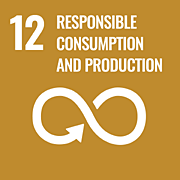
Responsible consumption and production
Worldwide consumption and production — a driving force of the global economy — rest on the use of the natural environment and resources in a way that continues to have destructive impacts on the planet.Economic and social progress over the last century has been accompanied by environmental degradation that is endangering the very systems on which our future development — indeed, our very survival — depends.
A few facts and figures:
- Each year, an estimated one third of all food produced – equivalent to 1.3 billion tonnes worth around $1 trillion – ends up rotting in the bins of consumers and retailers, or spoiling due to poor transportation and harvesting practices.
- If people worldwide switched to energy efficient light bulbs the world would save US$120 billion annually.
- Should the global population reach 9.6 billion by 2050, the equivalent of almost three planets could be required to provide the natural resources needed to sustain current lifestyles.
The COVID-19 pandemic offers countries an opportunity to build recovery plans that will reverse current trends and change our consumption and production patterns towards a more sustainable future.
Sustainable consumption and production is about doing more and better with less. It is also about decoupling economic growth from environmental degradation, increasing resource efficiency and promoting sustainable lifestyles.
Sustainable consumption and production can also contribute substantially to poverty alleviation and the transition towards low-carbon and green economies.
KATOWICE CITY ACTIVITIES
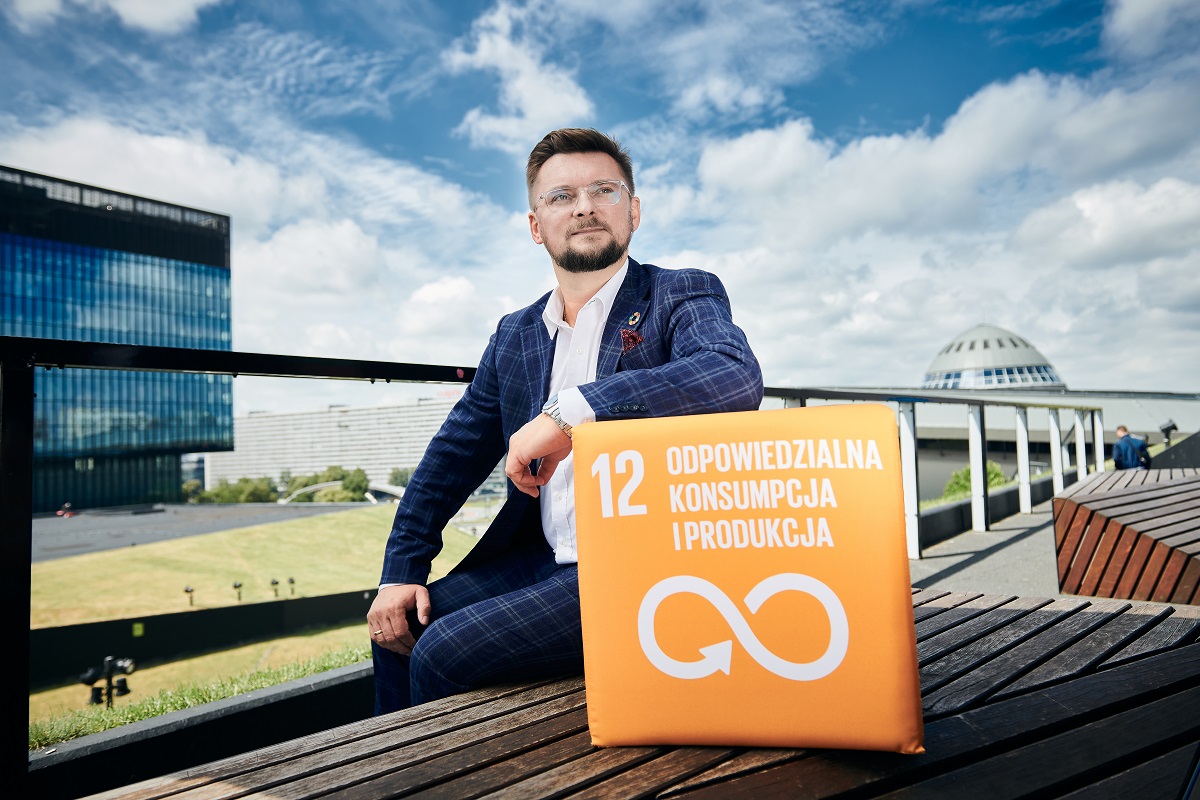
SprzątaMy Dzielnice (We clean up our neighbourhoods)
Clean Up the Neighbourhoods is a project that, since 2018, has involved residents in reporting and collectively cleaning up the most littered areas. In 2024, the City of Katowice, together with its citizens, carried out 71 world cleaning campaigns. The Municipal Utilities Company set up the relevant containers and removed the collected waste for a total of PLN 73,805.86.
SprzątaMy z firmami (We clean up with companies)
Inaugurated in 2022 with Sopra Steria and the Stowarzyszenie Wolnej Herbaty (Free Tea Association), the campaign lived to continue in 2023 and 2024, with company employees, the local community and activists cleaning up the area around Bolina Pond. Two containers of waste were collected. Branches of Katowice-based companies joined in the action: Sopra Steria Polska, Rockwell Automation, Inc., Honeywell, Mercure Hotels, ALSTOM.
The Easter Breakfast for the Single, as well as the Christmas Eve for the Single, which have been organised for many years at the International Congress Centre or the Spodek in Katowice, attract people who, for various reasons in life, do not have the opportunity to spend the most important Christians holiday with their loved ones. During the coronavirus outbreak, events continued in a mobile format, i.e. with food delivery. For several years, these events have had a metropolitan character. The activities are coordinated by the “Wolne Miejsce” Foundation, which involves many volunteers in the events. Around 2,500 people attend the events each year.
Municipal Consumer Ombudsman
As part of his educational activities, the Municipal Consumer Ombudsman encourages consumers to make sensible purchasing decisions, taking into account the actual need to purchase a particular good. He points out that, according to the provisions introduced by the EU Directive, if a defect in goods is discovered within two years of purchase, the consumer is entitled to have the goods repaired as part of a complaint.
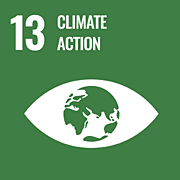
Climate action
The global temperature has already risen 1.1ºC above the pre-industrial level, with glaciers melting and the sea level rising. Impacts of climate change also includes flooding and drought, displacing millions of people, sinking them into poverty and hunger, denying them access to basic services, such as health and education, expanding inequalities, stifling economic growth and even causing conflict. By 2030, an estimated 700 million people will be at risk of displacement by drought alone.
Taking urgent action to combat climate change and its devastating impacts is therefore an imperative to save lives and livelihood, and key to making the 2030 Agenda for Sustainable Development and its 17 Goals – the blueprint for a better future – a reality.
In 2020, concentrations of global greenhouse gases reached new highs, and real-time data point to continued increases. As these concentrations rise, so does the Earth’s temperature. In 2021, the global mean temperature was about 1.1°C above the pre-industrial level (from 1850 to 1900). The years from 2015 to 2021 were the seven warmest on record.
To limit warming to 1.5° Celsius above pre-industrial levels, as set out in the Paris Agreement, global greenhouse gas emissions will need to peak before 2025. Then they must decline by 43 per cent by 2030 and to net zero by 2050. Countries are articulating climate action plans to cut emissions and adapt to climate impacts through nationally determined contributions. However, current national commitments are not sufficient to meet the 1.5°C target.
KATOWICE CITY ACTIVITIES
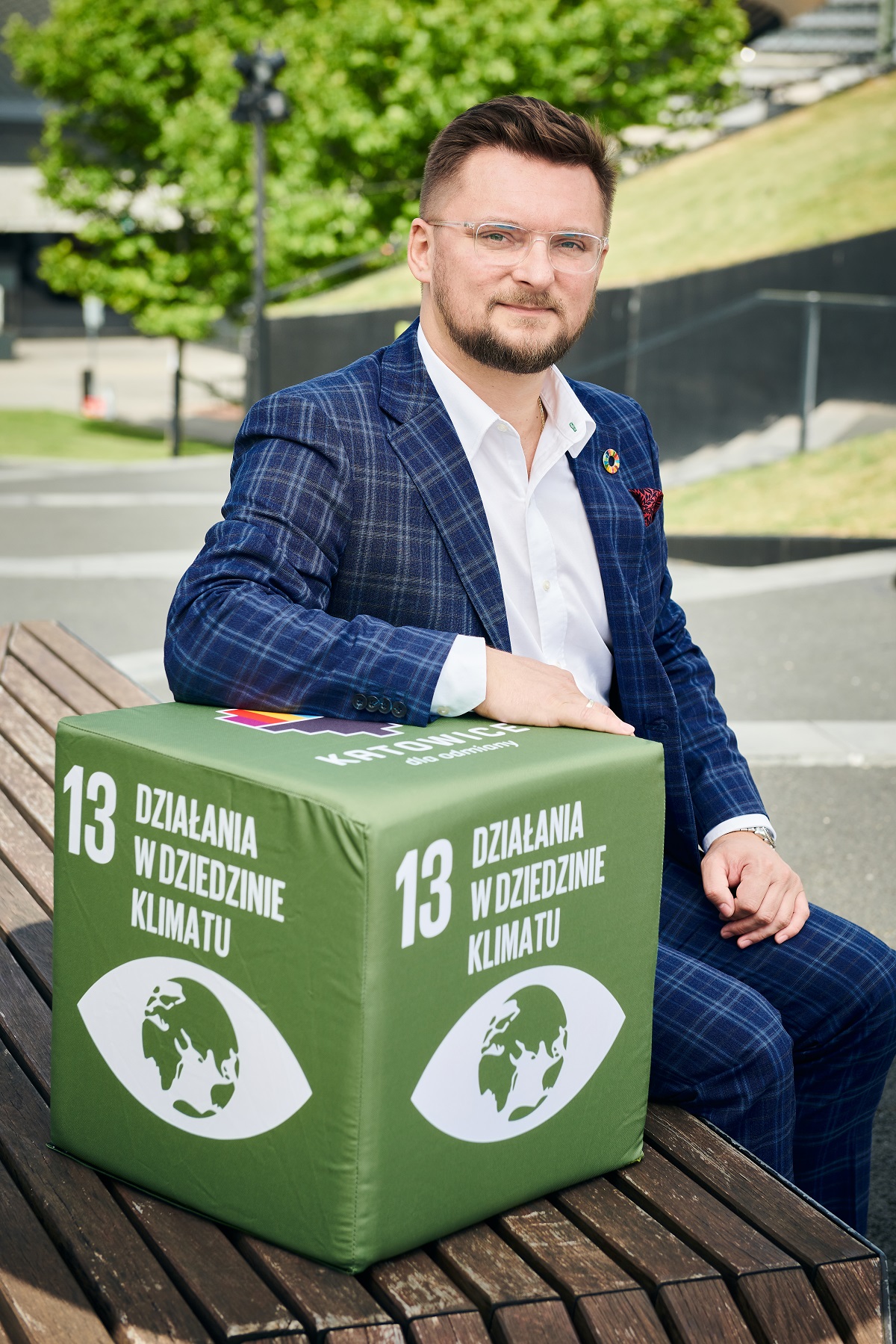
Tax exemption for green roofs or facades
The City Council has passed a resolution to exempt from property tax the floor areas of residential buildings indicated therein, in which green roofs or vertical gardens have been created on the wall of the building or which have green facades on at least one entire wall of the building. The rationale for the exemption is the establishment of a green roof over its entire surface or a vertical garden on at least half of the wall. In contrast, in the case of a green facade, in order to benefit from the exemption, it should be on the entire wall of the building, with the plants forming it being rooted in the ground.
The above constitutes the possibility to benefit from the exemption in the first year. In turn, the continuation of the exemption is possible with their maintenance in subsequent years. Only the usable areas of residential premises that are not used for business activities and are located in residential buildings will be exempt, and the relief is aimed at both residents and entrepreneurs.
https://bip.katowice.eu/Lists/Dokumenty/Attachments/142037/SESJA%20V-58-24.pdf
The most beautiful balcony in Katowice
The City of Katowice, in an effort to encourage residents to green their spaces, is organising the “Most Beautiful Balcony in Katowice” competition. The people of Katowice know very well that nature, even in such a small space as our balconies, has great power! As well as greenery in the city, which has a climatic and ecological function, protecting us from pollution, increasing the humidity of the air or influencing the bioclimate by lowering the air temperature by up to several degrees! Greenery also provides shelter, is a source of food for animals and insects, and finally, it has a social function and impacts on mental health, allowing one to experience complete relaxation.
The competition is open to all residents of Katowice who hold the legal title to the balcony whose decoration is being assessed. Its aim is to promote care for the aesthetics of one's surroundings and the city.
The first edition of the competition for the most beautiful Katowice balcony was organised by the City of Katowice in 2021. It was warmly welcomed by the residents. At the time, 39 entries were received, from which the jury selected three winners and awarded six distinctions. For the second edition, the number of entries exceeded 40 and the jury selected three winners and awarded six distinctions. There were as many award winners in the third edition with the difference that the jury chose from 41 entries. As many as 66 balconies were entered in the 2024 competition, and the authors of the most beautiful arrangements were awarded attractive cash prizes.
Leśny Piknik Rodzinny – Ekoodpowiedzialnie ()Forest Family Picnic - Eco-responsible
This annual event in Katowice's Forest Park combines environmental education with outdoor fun. Participants in the picnic will learn about waste segregation, green care and planting techniques, among other things. The picnic will include workshops, meetings with experts, attractions for children and adults and competitions. It's all the family fun that proves that ecology is not boring!
Climate Education
The programme was created to help young people understand the impact of environmental degradation on their future, to expand their knowledge, awareness and skills in the area of climate education and, above all, to build commitment and a sense of empowerment to counter the effects of global warming.
This is the first such programme implemented in local government schools in Poland, and its uniqueness lies in the fact that it involves the integration of climate crisis content into the core curriculum of all subjects at the second stage of education, i.e. in primary schools, grades 7.
A specially appointed team including both school teachers, academics, local councillors and civil servants developed the Pilot Curriculum for Climate Education. The team developed four guiding thematic areas around which the city's original programme oscillates. They are:
- critique of consumerism,
- loss of biodiversity,
- anthropogenic climate change and
- energy transition.
The programme is complemented by practical activities offered by the Centre for Environmental Education at the Jarosław Iwaszkiewicz School Complex No. 2 in Katowice - including nature-themed workshops and field activities.
The pilot of the programme took place in the second semester of the 2023/2024 school year in 5 Katowice Primary Schools: SP No 12, SP No 17, SP No 33, SP No 51 and SP No 53. Each school worked in a different thematic area.
“Plan na rzecz zrównoważonej energii i klimatu” (Sustainable Energy and Climate Plan - SECAP)
In April 2019, Katowice joined the “Covenant of Mayors for Climate and Energy” (CoM) by a resolution of the City Council. The Covenant was established in 2008 in Europe with the aim of bringing together representatives of local authorities who want to make a voluntary commitment to meet and exceed the EU's climate and energy targets
The document was adopted by the Resolution of the Katowice City Council of 27 July 2023 on the adoption of the “Sustainable Energy and Climate Plan” - SECAP. The resolution indicates that the plan is an update and continuation of the actions contained in the document “Low emission management plan for the city of Katowice” adopted by a Resolution of the Katowice City Council of 29 October 2014.
“Plan adaptacji miasta Katowice do zmian klimatu do roku 2030” (Plan for adapting the city of Katowice to climate change by 2030)
The document was prepared on the basis of the Agreement between the Mayor of Katowice and the Ministry of the Environment on the implementation of the project within the framework of the Operational Programme Infrastructure and Environment 2014 - 2020 entitled: “Climate change adaptation plans for cities with more than 100,000 inhabitants”.
The adaptation plan was developed in response to one of the most important environmental concerns, climate change and the need to adapt to the effects of climate change. The plan indicates the vision, the overarching objective and the specific objectives for adapting the City to climate change that should be achieved through the implementation of selected adaptation actions in the four most sensitive sectors/areas of the City, namely public health/sensitive groups, undeveloped land, transport and water management.
The developed Plan is a reference point for further adaptation measures for the City of Katowice and a basic tool for shaping urban policies aimed at increasing the city's resilience to the effects of these changes and strengthening its adaptability. The document is a set of proposals and solutions to the threats posed by climate change.
“Dobry Klimat dla Katowic” (Good Climate for Katowice)
The film “Good Climate for Katowice” was created on the basis of the “Plan for adapting the city of Katowice to climate change by 2030” adopted by the Katowice City Council and commented walks carried out for the inhabitants of Katowice at the end of 2019. The 17-minute educational film presents the city's methods of adapting to climate change, with particular emphasis on showing the city's exposure to urban flooding and urban heat island phenomena. The film also showcases good practices in the city of Katowice and the opportunities for residents to participate in adaptation and mitigation activities. The film presented was produced in cooperation with the Institute for Ecology of Industrial Areas and the Silesian Botanical Garden.
The “Przystosuj się!” (Adapt!) guidebook
The “Adapt!” guidebook was created to raise awareness among the residents of Katowice of the need to take action to adapt to ongoing climate change. It includes a number of suggestions for adaptation measures to be applied in the immediate surroundings - in one's own backyard, housing estate, neighbourhood, but also in the urban space.
The “Przystosuj się!” (Adapt!) guidebook
FB profiles: Miejskie Centrum Energii; Dobry Klimat; website mce.katowice.eu
Two thematic profiles related to the City of Katowice's wide-ranging activities in the field of energy efficiency and air and climate protection have been created on the Facebook platform. Katowice's residents are kept up to date on the city's latest events, meetings, actions and campaigns thanks to the portals. Since the launch of the profiles, around 1 200 posts have been made on the City's activities and information on air and climate protection, energy efficiency and environmental protection.
The mce.katowice.eu website has recently been expanded to include important current information for residents on: Central Records of Building Emissions and allowances for heat sources in use.
COMMUNITY GARDENS
More than a dozen community gardens have sprung up in the city, created together with residents as part of the civic action Zróbmy Sobie Grządki (Let's do some gardening), as well as from the Local Initiative and Green Budget, where residents raise funds for their own initiatives. Residents grow perennials, herbs and vegetables. What is important, however, is that they participate actively in the creation of the gardens, which has not only an ecological dimension, but also a social one: it influences the integration and health of the local community. As part of the “Let's do some gardening” campaign, residents worked together to build plant boxes, benches, pergolas or compost piles with the help of a non-governmental organisation (Miastoogród, the Bobrowe Żeremia Foundation). The action was funded as part of the Transformative Action Awards 2020, which the city won for its KATOobywatel project to build civil society.
KatoOgrodnicy
Based on cooperation with residents and experiences from joint projects, the KATOogrodnicy Facebook group was established, bringing together active residents who want to share experiences, knowledge as well as tools and crops with other urban gardeners. The group is moderated by the City KatoOgrodnicy | Facebook
To support the existing gardens but also to develop this trend in the city, we have launched the School of Gardeners in 2023. This includes a series of monthly workshop and educational meetings, on - line advice in the KATOogrodnicy Facebook group and field meetings in the so-called “Lotna Szkoła Ogrodników” (Fleeting Gardening School), which are designed to develop horticultural knowledge, but above all encourage engagement and integration. The city's partner is the “Ogrody Przyszłości” (Gardens of the Future) Foundation.
SprzątaMy Dzielnice (We clean up our neighbourhoods)
Clean Up the Neighbourhoods is a project that, since 2018, has involved residents in reporting and collectively cleaning up the most littered areas. In 2024, the City of Katowice, together with its citizens, carried out 71 world cleaning campaigns. The Municipal Utilities Company set up the relevant containers and removed the collected waste for a total of PLN 73,805.86.
SprzątaMy z firmami (We clean up with companies)
Inaugurated in 2022 with Sopra Steria and the Stowarzyszenie Wolnej Herbaty (Free Tea Association), the campaign lived to continue in 2023 and 2024, with company employees, the local community and activists cleaning up the area around Bolina Pond. Two containers of waste were collected. Katowice-based companies joined in the action: Sopra Steria Polska, Rockwell Automation, Inc., Honeywell, Mercure Hotels, ALSTOM.
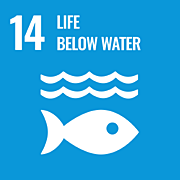
Life below water
The ocean drives global systems that make the Earth habitable for humankind. Our rainwater, drinking water, weather, climate, coastlines, much of our food, and even the oxygen in the air we breathe, are all ultimately provided and regulated by the sea.
Careful management of this essential global resource is a key feature of a sustainable future. However, at the current time, there is a continuous deterioration of coastal waters owing to pollution, and ocean acidification is having an adversarial effect on the functioning of ecosystems and biodiversity. This is also negatively impacting small scale fisheries.
Saving our ocean must remain a priority. Marine biodiversity is critical to the health of people and our planet. Marine protected areas need to be effectively managed and well-resourced and regulations need to be put in place to reduce overfishing, marine pollution and ocean acidification.
KATOWICE CITY ACTIVITIES
.jpg)
Metamorphosis of the Valley of Five Ponds
The revitalisation of Katowice's Valley of Five Ponds covers an area of more than 150 hectares, of which the surface area of the water reservoirs alone is 91 hectares - the equivalent of 127 full-size football pitches. The valley is formed by ponds:
- Morawa,
- Borki,
- Hubertus I,
- Hubertus II
- and Hubertus III.
The naturally rich and attractive area is conducive to a variety of leisure and outdoor activities - not only sunbathing, but also cycling, walking, running or fishing. Therefore, the revitalisation aims to make this space safe for the people of Katowice, while preserving its natural character.
The first phase of revitalisation was completed in 2022. A new boathouse, quay, jetty, barbecue area and bathing facilities on the south-eastern shore of the Morawa pond have been made available for use by residents. The cost of the investment is more than PLN 6.5 million.
In August 2024, a bathing area on the north side of the Morawa pond was opened to the public as part of an investment of nearly PLN 12.9 million. A space has been created here that is very conducive to leisure and recreation. Sunbathers have around 100 metres of sandy coastline and a lido with lifeguards at their disposal. Above, on the slope, there was a terrace with camping and lounging areas, a children's playground and beach volleyball courts. Changing rooms, showers and toilets are also available.
The next - the third phase of the revitalisation - will include:
- construction of another beach on the southern shore of Borki Pond,
- new car park
- and a promenade along the eastern shore of the Morava Pond.
Revitalisation of Starganiec
Starganiec Pond has been given a completely new face. The work was carried out in consultation between Katowice, Mikołów and the State Forests. As part of the regeneration, the area around the pond has been landscaped and tidied up, the highlight being the beach located here. It is complemented by a pier - partly permanent and partly floating. Paths adapted to the needs of people with disabilities have been laid out. Residents can relax on deckchairs or benches, and there are also picnic gazebos. Two beach volleyball courts have also been created on site.
The pond area is lit by solar lamps. CCTV has also been installed. Places for foodtrucks, a portable toilet zone and the surface of the car park have been designated.
New vegetation has also appeared at the pond. Old trees were left in the forest line. Multi-stemmed native and melliferous plants were planted, as well as old-fashioned varieties of fruit trees.
One of the key issues with the development was that it was to be carried out in such a way as not to harm the biodiversity and natural assets of the Starganiec Pond area. Experts were consulted on all decisions concerning the project to revitalise the area.
The cost of the investment is PLN 7 million.
Revitalisation of Kozubek Pond
Thanks to the revitalisation of the Kozubek pond in 2023 in the Witosa and Załęża residential area, residents have gained a new green space. Among other things, the investment included the construction of cobblestone paths and mineral paving. A wooden platform made of Siberian larch appeared above the pond itself. In addition, there are benches, deckchairs, bins and bike racks around the pond. A playground with various types of equipment has been built for the children: rocker, merry-go-round, swings or balance beam. The revitalised space will also be safe to use after dark, as modern lights have been installed throughout the area. The site is also accessible to people with disabilities.
The project was implemented as part of the civic budget. The cost of the revitalisation is approximately PLN 1.8 million.
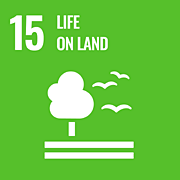
Life on land
Nature is critical to our survival: nature provides us with our oxygen, regulates our weather patterns, pollinates our crops, produces our food, feed and fibre. But it is under increasing stress. Human activity has altered almost 75 per cent of the earth’s surface, squeezing wildlife and nature into an ever-smaller corner of the planet.
Around 1 million animal and plant species are threatened with extinction – many within decades – according to the 2019 Global Assessment Report on Biodiversity and Ecosystem Service. The report called for transformative changes to restore and protect nature. It found that the health of ecosystems on which we and all other species depend is deteriorating more rapidly than ever, affecting the very foundations of our economies, livelihoods, food security, health and quality of life worldwide.
Deforestation and desertification – caused by human activities and climate change – pose major challenges to sustainable development and have affected the lives and livelihoods of millions of people. Forests are vitally important for sustaining life on Earth, and play a major role in the fight against climate change. And investing in land restoration is critical for improving livelihoods, reducing vulnerabilities, and reducing risks for the economy.
The health of our planet also plays an important role in the emergence of zoonotic diseases, i.e. diseases that are transmissible between animals and humans. As we continue to encroach on fragile ecosystems, we bring humans into ever-greater contact with wildlife, enabling pathogens in wildlife to spill over to livestock and humans, increasing the risk of disease emergence and amplification.
KATOWICE CITY ACTIVITIES
Urban beehives on rooftops
Seven municipal beehives have already been erected on the roofs of the National Polish Radio Symphony Orchestra's headquarters and three municipal swimming pools, in Brynów, Burowiec and Zadole. The honey collected from them is used as a gadget to promote the city. This initiative is part of the trend of placing hives in urban environments, which are proving to be very bee-friendly. At the same time, the presence of these insects is beneficial to the local vegetation, especially the growing number of flower meadows in the city.
A city, especially one like Katowice, which has a large proportion of green space, is a very friendly environment for bees. It has a slightly different microclimate to rural areas. It's warmer in there, the season is longer. There is also a greater variety of flowers. Instead, there are no giant monoculture crops which, although they look nice in pictures (fields of rape or sunflowers), are not insect-friendly. It is also important to note that pesticides and fertilisers are unlikely to be used in the city to support plant growth.
It is estimated that more than 75% of crops grown in Europe reproduce through pollination by bees and other insects. Paradoxically, it is the cities that can be a dream habitat for them.
The honey collected in Katowice was once again analysed by the Bee Products Quality Testing Laboratory of the State Research Institute of Horticulture in Puławy. The results of the pollen analysis of nectariferous plants show that almost 30% of the pollen in the Katowice honeys consists of pollen from plants in the genus Prunus, i.e., for example, sweet cherry, sour cherry, plum and peach. The only exception is the bees living at the Brynów Basin. In the honey collected there, pollen from this type of tree accounts for as much as 57% of the total.
30% of the pollen collected by the bees living on the roof of the NOSPR and at the Zadole Basin comes from willow. The diet of the bees living at the Burowiec Basin is also interesting. More than 23% of the pollen in the local honey is pollen from brassica plants, such as radish, kohlrabi, cauliflower, oilseed rape, but also ornamental plants: levconia, common lac, lady's evening primrose and cabbage. In Zadole such pollen accounts for only 14% of the total, in the inner city (NOSPR) 10%, and in Brynów 6%.
Honeydew indicators were observed in all the honeys, further emphasising their uniqueness.
Zielona Warszawska (Green Warszawska)
As late as 2022, ul. Warszawska was still primarily an all-day car park for people commuting to Katowice from other cities. A comprehensive transformation of the site was promised by Katowice Mayor Marcin Krupa and he has kept his word. In December 2023, the investment was completed. The most important change was primarily the introduction of lots of greenery. 70 trees, 2,649 shrubs and 2,734 perennials and grasses were planted there. At the same time, roads were narrowed and space was given over to pedestrians. Instead of narrow and crooked pavements, elegant promenades with street furniture have appeared: benches, litter bins, bike racks and new LED lighting. And in 2024, a plant replacement was carried out on ul. Warszawska - the space between the track and the carriageway was given a new green character with the planting of around 1,000 roses.
Greening of al. Korfantego
One of the most spectacular green transformations took place in Katowice between 2022 and 2023, when a section of al. Korfantego along the tram line was deconstructed and 50 trees and thousands of shrubs and plants were planted. Implementing green projects is not only an investment in aesthetics, but also a fight against the effects of climate change. The deconcreting of Korfantego and the implementation of planting have allowed the natural retention of hundreds of thousands of litres of rainwater, localised reduction of heat island phenomena and improved air purification.
The transformation on al. Korfantego is just one of many green projects carried out in Katowice in recent years. The metamorphosis of ul. Warszawska was completed in autumn 2023, and ul. Dworcowa two years earlier. In total, several hundred trees were planted in the central part of Katowice.
New parks for residents
In the first half of 2024, residents began using four new parks: in Wełnowiec (costing more than PLN 13 million), Kostuchno (more than PLN 5.4 million), Ochojec (more than PLN 10 million) and on the border of Bogucice, Zawodzie and Dąbrówka Mała (almost PLN 8 million).
One of these green developments is the park under construction at the junction of Leopolda, Le Ronda and Bohaterów Monte Cassino. This will include a children's playground and educational zone, a green labyrinth, a sensory garden, a green tunnel, as well as glades and flower meadows, an environmental education zone and a viewing area. The development will be complemented by new footpaths, benches, tree and planting and lighting.
Revitalisation of Park Wełnowiecki
In 2018, Katowice Mayor Marcin Krupa pledged to create new city parks and revitalise existing parks. One of these is the 137,000-square-metre Wełnowiecki Park, whose revitalisation will cost almost PLN 13 million. The people of Katowice will gain another green space, conducive to active recreation. The investment will include a new playground, a basketball and volleyball court, sledge mountain, a gym, a dog run and a pumptrack for cyclists. The park will also feature a relaxation area with hammocks, benches and barbecue points. In addition, shrubs, perennials and 89 trees will be planted. The revitalisation will be completed in the first half of 2024.
More and more trees in one of Poland's greenest cities
Katowice is among the leading cities with the largest area of green space. At the same time, the city is developing its green infrastructure all the time. More than 1,000 new trees of various species were added to Katowice in 2024, such as maples, lime trees and beech trees. However, the important contribution of residents who have contributed to additional planting through programmes such as the Green Budget should not be forgotten. Such initiatives not only increase the number of trees, but also involve the local community in ecological efforts.
However, it is not only the Department of Urban Greening that carries out plantings in Katowice. The Municipal Housing Company cares for the surroundings of the city's buildings and plants new greenery near them, making the environment more welcoming.
New trees are also being planted in the city thanks to the work of the Katowice Forestry Commission. In 2024, the Forestry Commission planted nearly 300,000 seedlings. Of these, the largest number were pine trees - almost 180,000. In addition, foresters planted oaks (more than 60,000), beeches (around 22,000) and spruces (nearly 12,000), among others.
In 2025, thanks to the planned investment, almost 1,200 trees will decorate areas of Katowice, with implications for both the appearance of the sites and environmental issues. Among other things, greenery is important for counteracting urban heat islands. As part of the task, the selected contractor will plant trees near selected schools and kindergartens and between ul. Gliwicka and the Maroko pond, in the area of ul. Bohdanowicza, ul. Tysiąclecia and ul. Mieszka I, as well as in the area on ul. Pijarska.
Sheep that cut the grass
The idea of mowing the grass with the help of sheep was brought to the Municipal Greenery by a Silesian breeder, who also performed similar services in Gliwice, among other places. He suggested testing such a solution in Katowice. In 2023, the Urban Greening Department test-hired sheep to “mow” the grass at selected points in the city. The animals performed their task perfectly and gained a lot of sympathy from the residents, which is why they also appeared in Katowice in 2024.
The grass mowing in Katowice will be done by sheep of the Cameroonian variety. Their first point of action was ul. Na Obrzeżu, where they had an area of almost 20,000 m2 to mow. The farmer adjusted the number of sheep each time according to the location. When the animals had completed their task, they moved on to the next point. Throughout the season, they appeared in various locations - including the streets: Kijowska, Kostka Napierskiego, Oswobodzenia, Tysiąclecia, Wantuły or Ziołowa. In 2024, they were given land totalling 200,000 m2 to mow.
Organic grass mowing
Grass-eating sheep are an ecological solution that complements traditional mowing. Where the terrain allows, sheep may appear instead of mowers. As the animals graze on the chosen area, they additionally fertilise it, reducing the need to use ready-made fertilisers. This supports the conservation and development of the flora in the area where they are located. They also help to get rid of weeds. In addition, they make no noise, which for many people is a definite advantage. The presence of sheep is also a curiosity for passers-by. The sheep bring the most joy to children, for whom such a sight in a big city is not an everyday occurrence.
Fauna and flora of Katowice
Rare species of flora and fauna or plant communities, some of which are under legal protection, are a particular strength of the city. Some are protected in specially designated areas, such as nature reserves: “Las Murckowski” (Murckowski Forest), protecting beech and mixed forests overgrowing the slopes of Wanda Hill, and “Ochojec”, protecting mountain plants.
Other areas of natural value are: the headwaters of the Kłodnica River with riparian forest, a fragment of the peat bog and swamp forest “Płone Bagno”, the ponds Borki, Morawa and Hubertus. The Katowice Forest Park, the ponds on the Tysiąclecia housing estate, the riparian forests on the Ślepiotka River, the preserved meanders of the Kłodnica River and the white stork's nest in Zarzecze also attract attention. Monumental trees or groups of trees are an important part of the landscape.
Animals in the city
As part of the successive editions of the Katowice Green Budget, requests from district councils and on its own initiative, the Department of Urban Greening is systematically installing new nest boxes, hedgehog houses and insect hotels, the total number of which has already exceeded 500.
As part of the three editions of the “Złóż sobie karmnik” (Assemble your own feeder) campaign (2022, 2023 and 2025), self-assembly feeders were distributed to residents. The campaign aims to draw attention to the proper feeding of birds and encourage DIY, sometimes with whole families. It is also an excellent opportunity to observe birds, of which there are dozens of species in the city.
In 2023, the following tasks were carried out by the Environment Department as part of the Green Budget: “Feeders for birds fed by residents of Załęże” - 4 feeders of various sizes were installed in four locations of Załęże area. “Domek dla jeża” (Hedgehog house) - hedgehog houses (10 pieces) were made and placed in convenient locations around ul. Łętowskiego.
In February 2021, we distributed 90 bird nesting boxes to residents. The action was repeated in subsequent years. The booths were made by people with intellectual disabilities during the SPES Association's occupational therapy workshop. Ornithologists have long encouraged, among other things, the use of nest boxes to help birds nesting in hollows. Booths were placed in the hands of private individuals, but also institutions such as schools and kindergartens.
In September 2020, TAURON donated 25 hedgehog houses to Katowice, and we gave them to residents as part of a civic action. Residents collected the houses from us and pledged to look after them. It was also part of an education and information campaign to popularise the care of hedgehogs in the city. The staff of the Urban Greening Department remember to leave piles of leaves for hedgehogs after the autumn clean-up.
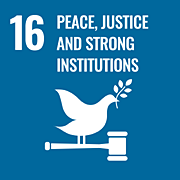
Peace, justice and strong institutions
Conflict, insecurity, weak institutions and limited access to justice remain a great threat to sustainable development.
The number of people fleeing war, persecution and conflict exceeded 70 million in 2018, the highest level recorded by the UN refugee agency (UNHCR) in almost 70 years.
In 2019, the United Nations tracked 357 killings and 30 enforced disappearances of human rights defenders, journalists and trade unionists in 47 countries.
And the births of around one in four children under age 5 worldwide are never officially recorded, depriving them of a proof of legal identity crucial for the protection of their rights and for access to justice and social services.
KATOWICE CITY ACTIVITIES
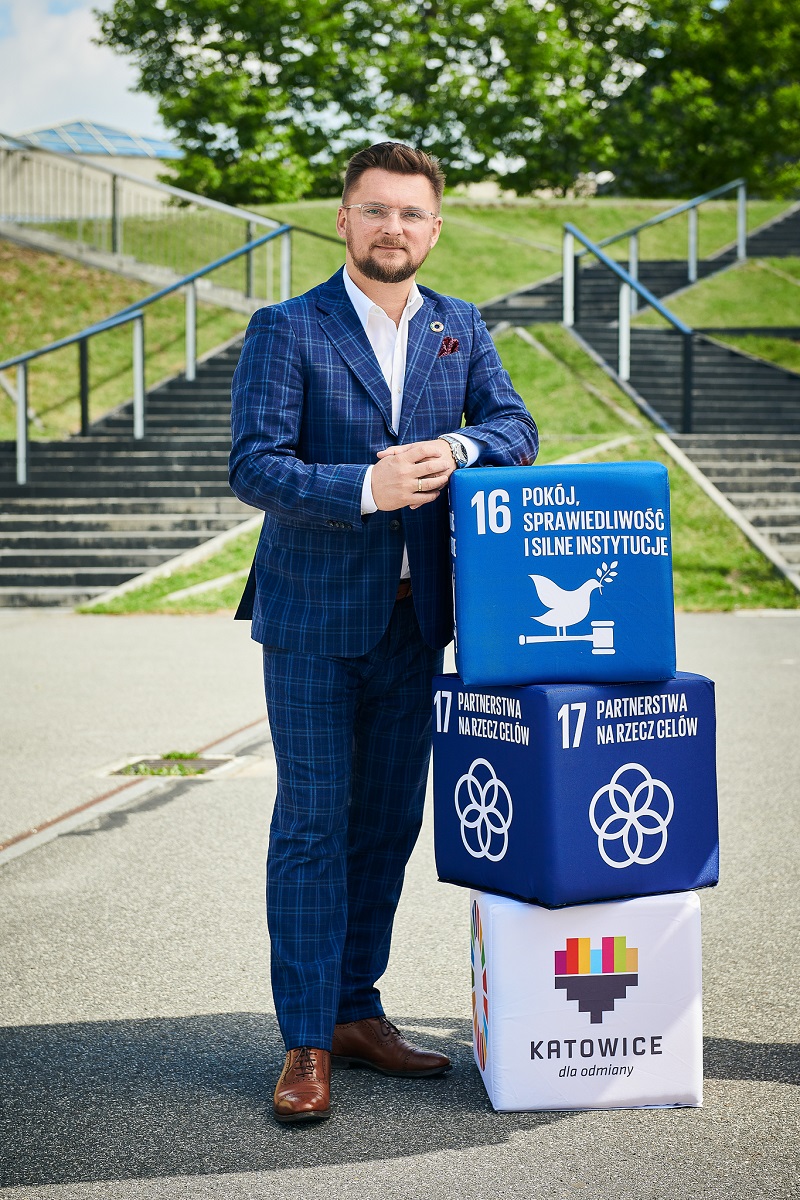
Budżet Obywatelski (Citizens’ Budget)
Residents particularly value the opportunity to participate in public consultations organised on issues of importance to local communities. The most popular are those in which the citizens of Katowice decide on the allocation of a part of the city budget for tasks indicated by them as priorities, i.e. the civic budget.
In 2024, 3 consultation processes were carried out, launched by order of the Mayor of Katowice, with a total of nearly 800 participants.
In the 11th edition of the Civic Budget (in 2024), residents submitted 313 task projects. As a result of the vote, 41,100 Katowice residents selected 140 ideas for implementation in 2025, amounting to more than PLN 16.6 million. The fifth edition of the Green Budget was also announced in 2024. Thanks to the activity of residents and the submission of ideas, 112 projects relating to ecology and environmental protection in the broadest sense of the term, worth almost PLN 3 million, will be implemented in 2025.
The primary duty of local government is to serve its residents, which is why the City of Katowice, on the one hand ensuring the transparency of its activities, and on the other using the available tools (the city's website, social media and the KISS text messaging service), informs the citizens of Katowice about the tasks it undertakes.
https://katowice.eu
Phone shopping or food and hygiene package:
As part of the offer of the Municipal Social Welfare Centre in Katowice, the city of Katowice offered assistance in shopping until 30.06.2023, “Shopping Emergency”, “Parcels”, i.e. a free package of food and hygiene products, to prevent the development of the epidemic.
Applications for the “Shopping Emergency” or “Parcel” were accepted by telephone.
The service was provided by the staff of the “Wolne Miejsce” Foundation, who were equipped with appropriate badges.
Psychological support
The City of Katowice offers counselling to people in need of psychological support as part of the offer of the Municipal Social Welfare Centre in Katowice:
- SENIOR CONFIDENTIAL TELEPHONE: tel. 796 970 686 - available from 4:00 p.m. to 7:00 p.m. (Monday to Saturday)
- Crisis Intervention Centre of the Municipal Social Welfare Centre in Katowice. Telephone and email contact possible: tel. 32 606 18 08, email: oik@mops.katowice.pl
On-call psychologists and interventionists from 8:00 a.m. to 7:00 p.m. (Monday to Friday).
- Centre for Specialised Counselling Methodology and Strategies of the Municipal Social Welfare Centre - remote telephone contact: tel. 572 333 750.
Financial assistance from social assistance or care services:
The City of Katowice, as part of the offer of the Municipal Social Welfare Centre in Katowice, operates the Srebrny Telefon (Silver Phone) 32 251 69 00, where people in need of financial support from social assistance or care services, from Monday to Friday between 7.30 a.m. and 3.30 p.m., can obtain detailed contact information and how to complete all formalities.
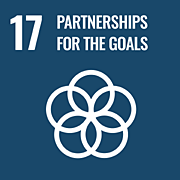
Partnerships for the goals
The SDGs can only be realized with strong global partnerships and cooperation.
A successful development agenda requires inclusive partnerships — at the global, regional, national and local levels — built upon principles and values, and upon a shared vision and shared goals placing people and the planet at the centre.
Many countries require Official Development Assistance to encourage growth and trade. Yet, aid levels are falling and donor countries have not lived up to their pledge to ramp up development finance.
Due to the COVID-19 pandemic, the global economy is projected to contract sharply, by 3 per cent, in 2020, experiencing its worst recession since the Great Depression.
Strong international cooperation is needed now more than ever to ensure that countries have the means to recover from the pandemic, build back better and achieve the Sustainable Development Goals.
KATOWICE CITY ACTIVITIES
Successful implementation of the Sustainable Development Goals requires partnerships between actors in the city. This is strongly influenced by the actions taken jointly at the
- regional level: Upper Silesian and Zagłębie Metropolis - GZM Metropolis
- national level: local government organisations, e.g. Union of Polish Metropolises, Union of Polish Cities and
- international level: partner cities, international organisations - GPM, IAEC, ICLEI, EUROCITIES, UNESCO
Partner cities of Katowice:
Groningen (Netherlands) since 6 May 1994.
Cologne (Germany) since 15 March 1991.
Košice (Slovakia) from 6 May 2009.
Lviv (Ukraine) from 11 September 2023.
Miskolc (Hungary) since 28 August 2005.
Mobile (USA) since 14 March 1990.
Opava (Czech Republic)
Ostrava (Czech Republic) from 4 January 1996 Ostrava / part I Ostrava / part II
Pula - Pola (Croatia) from 30 November 2012.
Saint - Etienne (France) since 9 June 1994.
Shenyang (People's Republic of China) since 6 June 2007.
Partner City Festival “Łączy nas chleb” (Bread connects us)
An annual, international event in Zadole Park, the aim of which is to show the diversity and, at the same time, the community of cultures, nations and faiths. Its programme includes panel discussions with invited guests, presentations of traditionally produced bread, honey, wine, herbs, regional dishes and artistic performances. Representatives of various religions, consuls general and honorary consuls, partner cities, master chefs, the University of Silesia, organisations, district councils, catering schools, artisans, people of culture and residents of Katowice are all invited to participate in the festival.
Kalendarz Trzech Religii (Calendar of the Three Religions)
“The Calendar of the Three Religions” has been the fruit of cooperation between Christians, Jews and Muslims, as well as the scientific and cultural communities for 12 years now.
“The Calendar of the Three Religions” is a tool for the formation of interreligious dialogue. The project unites the faith communities of the city of Katowice, is the result of cooperation and the deepening of mutual respect towards each other and cultural heritage. The first calendar was published in 2013. The calendar is being developed by representatives of the churches: Catholic, Evangelical-Augsburg, Orthodox, Jewish and Muslim communities, in cooperation with the Faculty of Theology of the University of Silesia.
This year's edition is unveiled in a new graphic design with new content - the feasts of the Greek Catholic Church in Poland.
The 2025 calendar was published in an edition of 6,000 copies. It is distributed by its individual creators, including beyond our borders. Part of the print run is available to residents free of charge at the Tourist Information Centre located at Rynek 13 in Katowice and at the Faculty of Theology of the University of Silesia in ul. Jordana 18.
RYCHEZY award
North Rhine-Westphalia (NRW) and Poland are deeply connected historically and socially. As a result of labour migration in the 19th century through immigration in the 1970s and 1980s to the present day, 650 000 people of Polish origin live here. Polish women and men have shaped the identity of North Rhine-Westphalia and continue to play an important role in the region today. Numerous associations, cultural institutions and initiatives bear witness to this.
The NRW national government has been honouring this special bond since 2009 with the Rychezy Award, named after the first Queen of Poland, wife of Mieszko II. She came from the Rhine region and her remains are interred in Cologne Cathedral. The focus for 2023 is on a German-Polish commitment to support Ukraine, hence the theme “North Rhine-Westphalia and Poland together for Ukraine”. The Minister for Federal and European Affairs as well as the Media of the State of North Rhine-Westphalia awarded the Rycheza Award to the project for an inclusive dance workshop at the Spilno Hub- UNICEF Katowice, following an application by the City of Cologne with the support of the City of Katowice. The choice of venue was not accidental, as it is a space that supports the integration of the Polish and Ukrainian communities in Katowice.
SPILNO HUB Centre - UNICEF Katowice
As part of an agreement between the City of Katowice and the United Nations Children's Fund - UNICEF, an integration-friendly space for the Polish and refugee community has been created - the Spilno Hub - UNICEF Katowice. The Spilno Hub - UNICEF Katowice started as a social café, with the main objective of strengthening the social capacity of refugees and improving integration and communication channels for cooperation and interaction with the City of Katowice. The main aims of the facility include:
- activation through networking, developing mutual contacts and involving representatives of the local community in joint activities, stimulating their activity, shaping creative, independent thinking;
- integration through refugee communities learning about Polish customs and culture, being able to meet in a safe place and building a local community.
International organisations
The City of Katowice is involved in revitalisation projects: NODUS (Urbact II), Resilient Europe (Urbact III), Inicjatywa Miast Partnerskich: Sieć Rewitalizacji (Partner Cities Initiative: Revitalisation Network) (a pilot project of the Ministry of Investment and Development) and the Plan Działań dla Miast (Urban Action Plan project) (a companion initiative to the 11th World Urban Forum, organised by the Institute for Urban and Regional Development in cooperation with the Ministry of Funds and Regional Policy).
-




